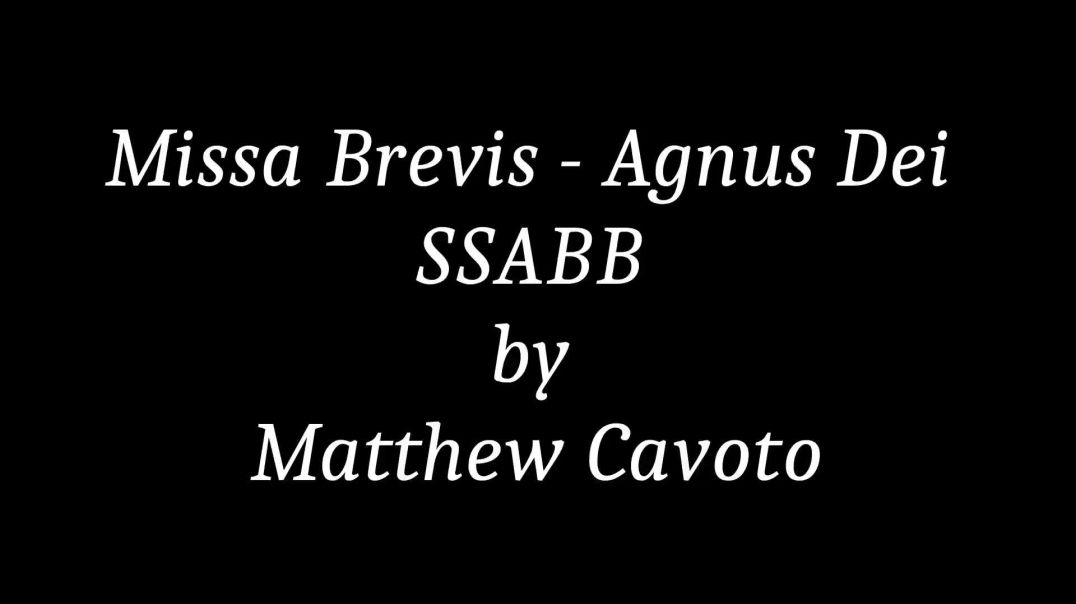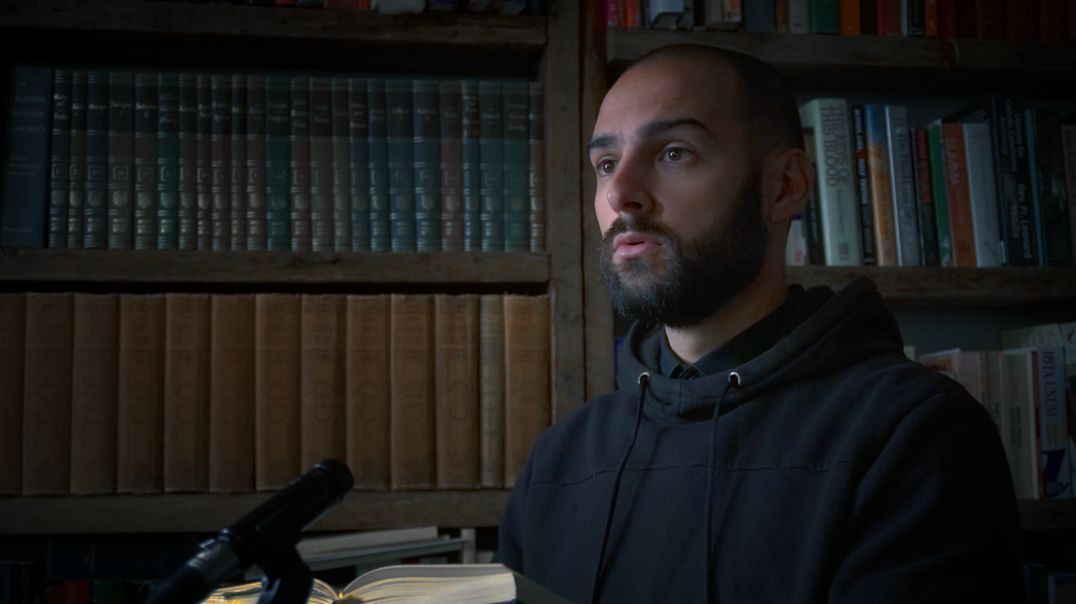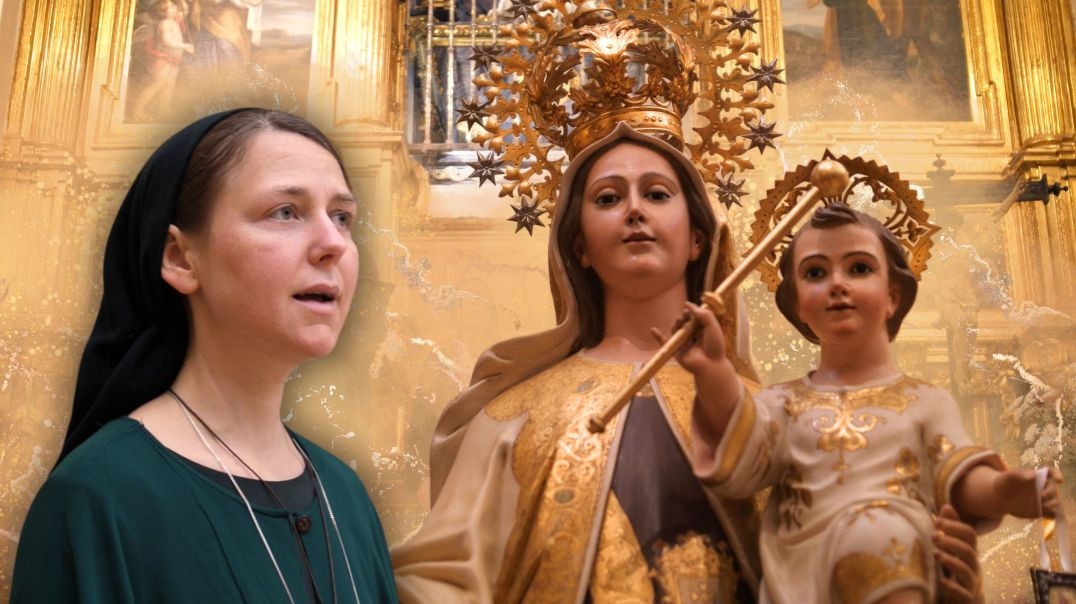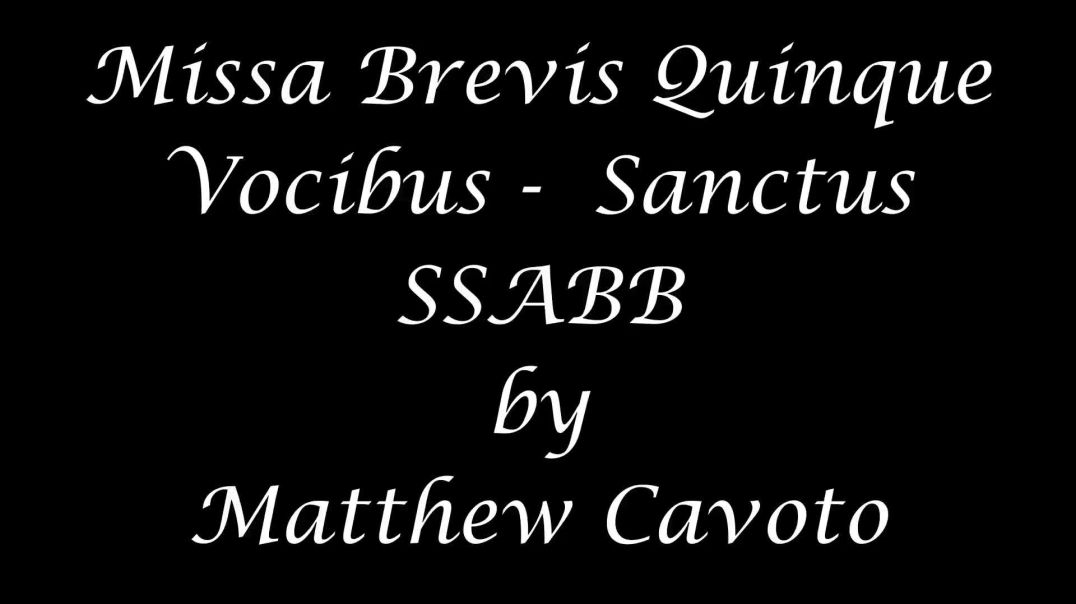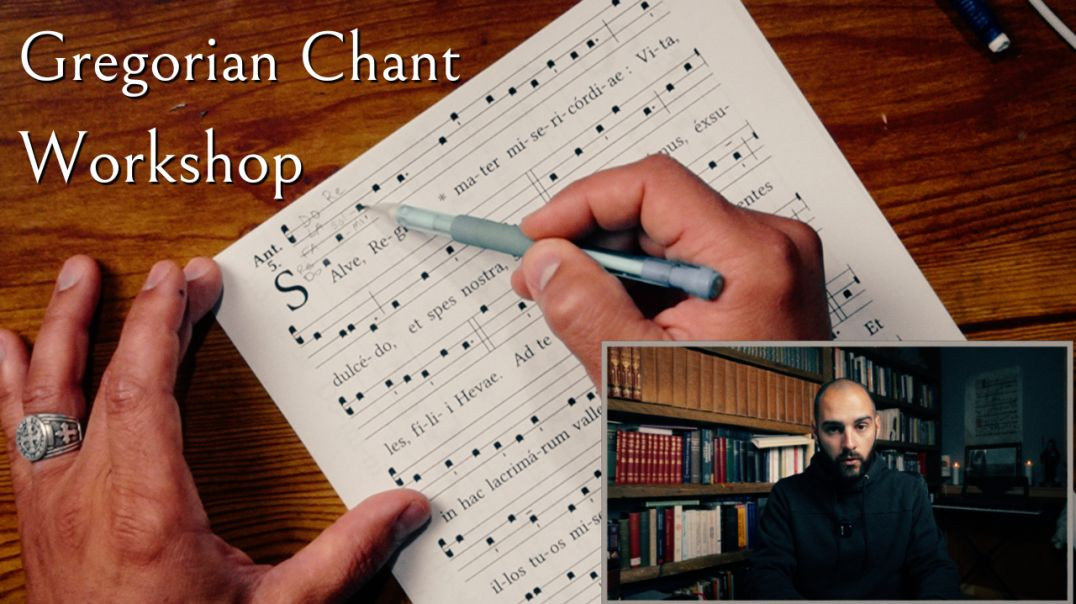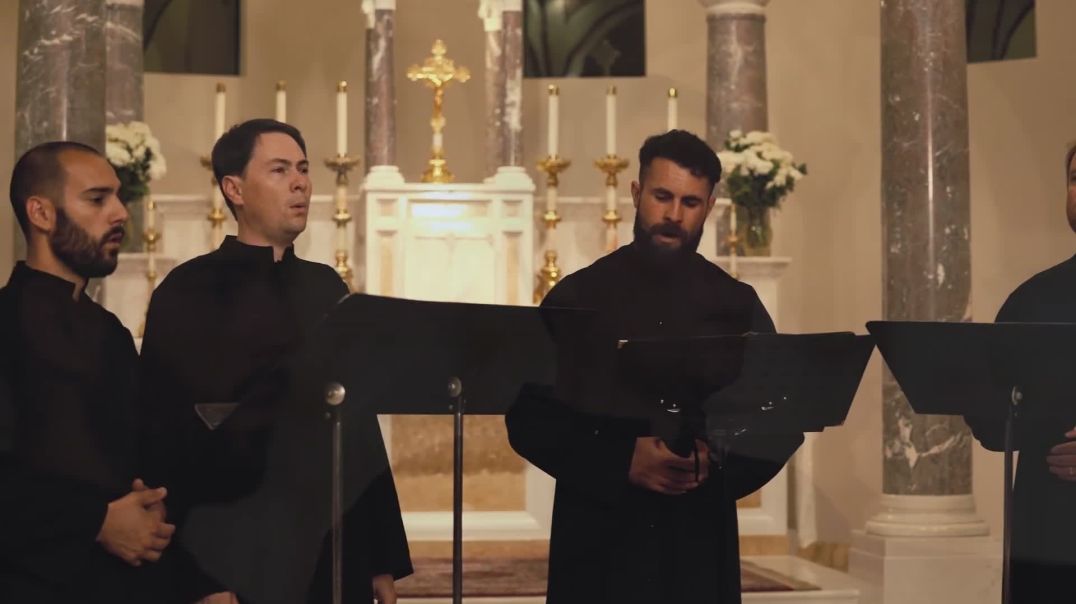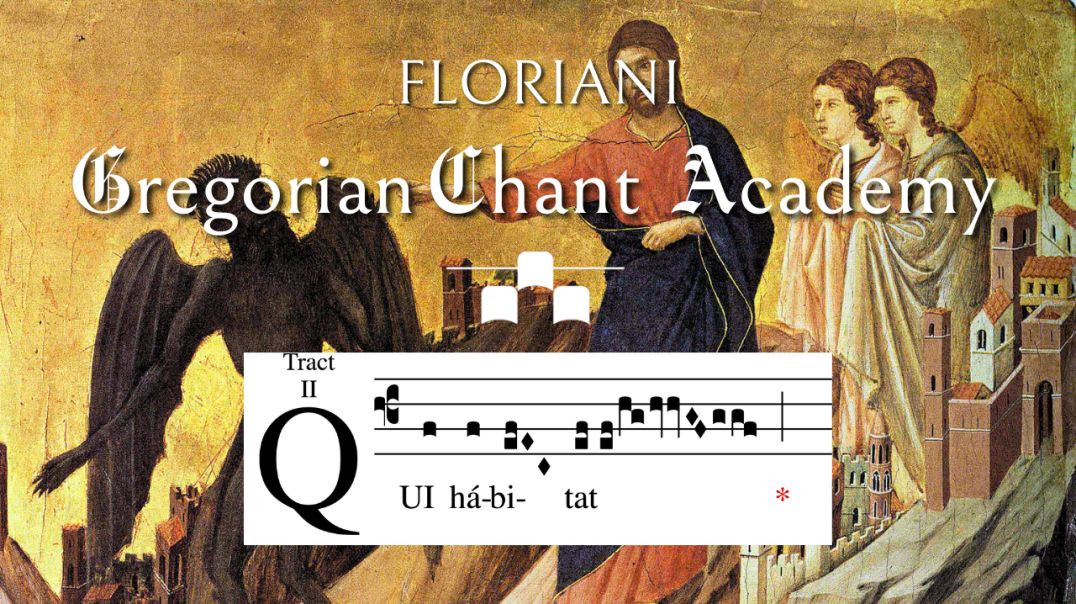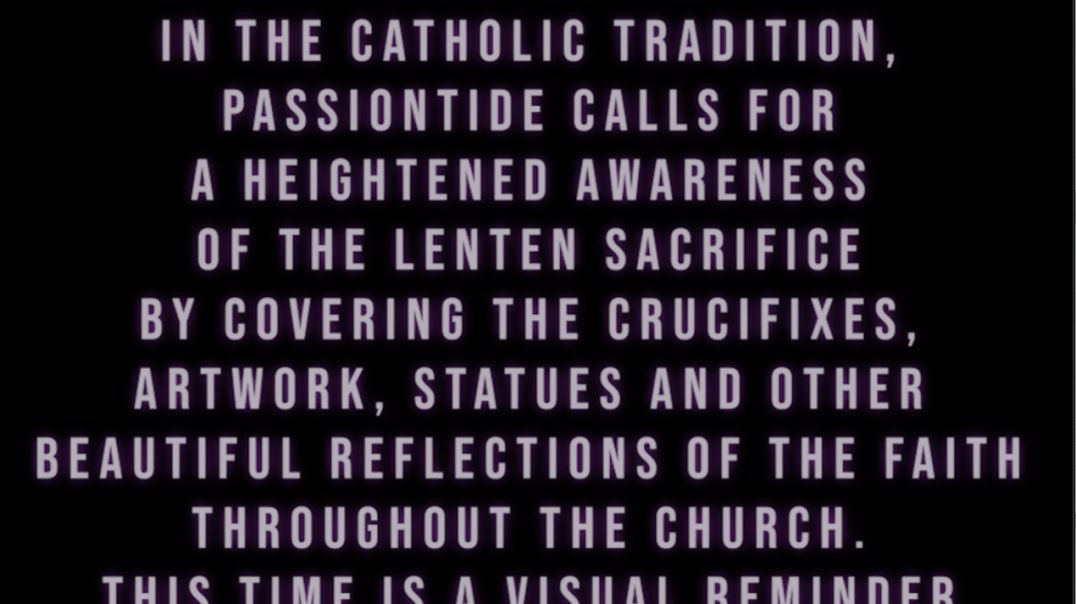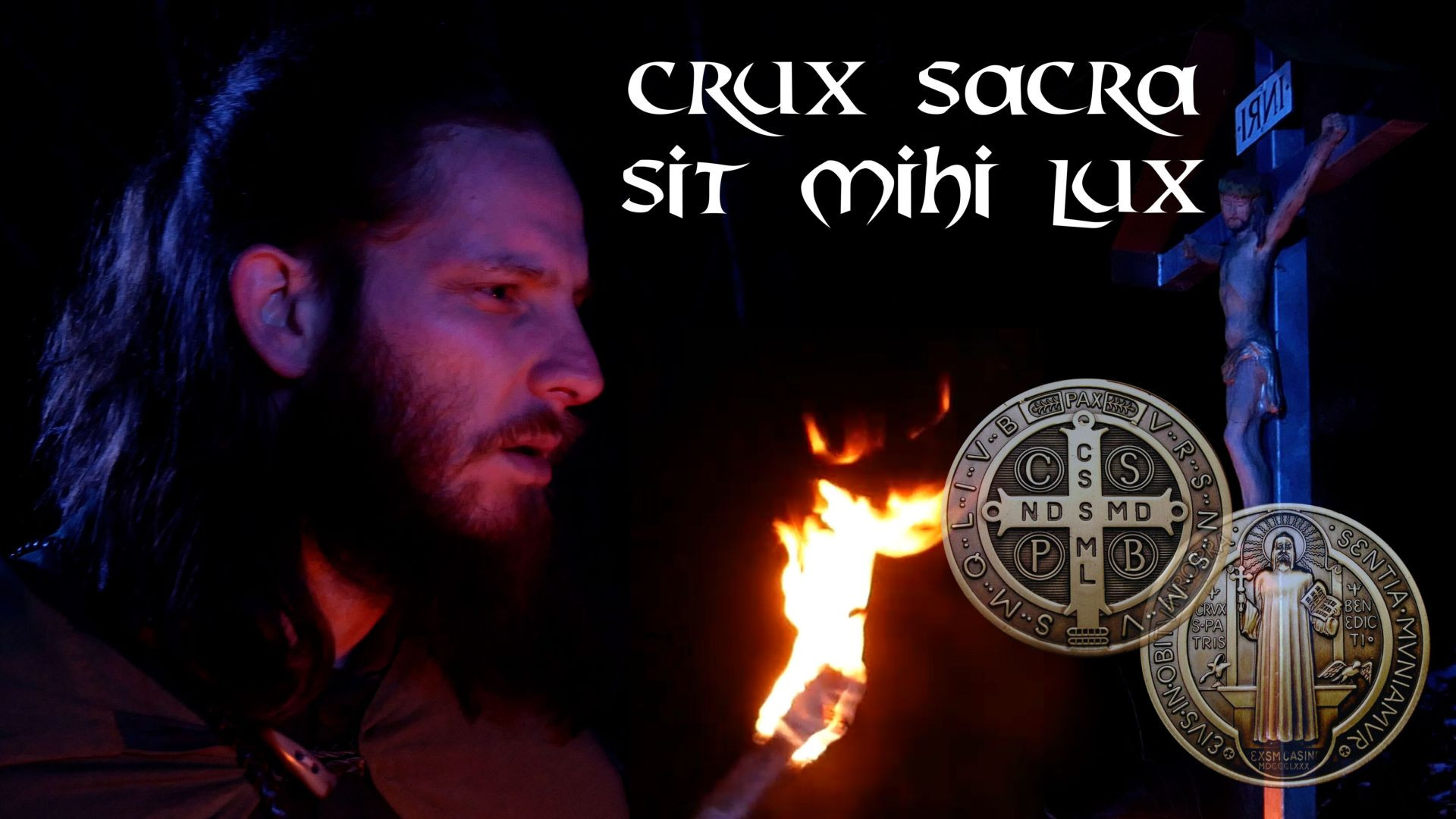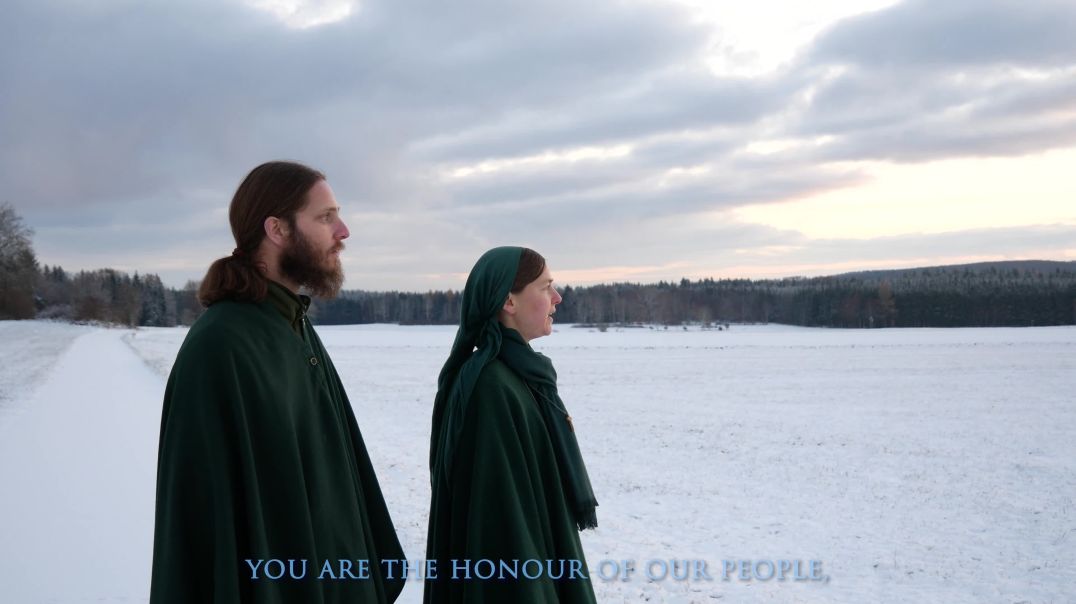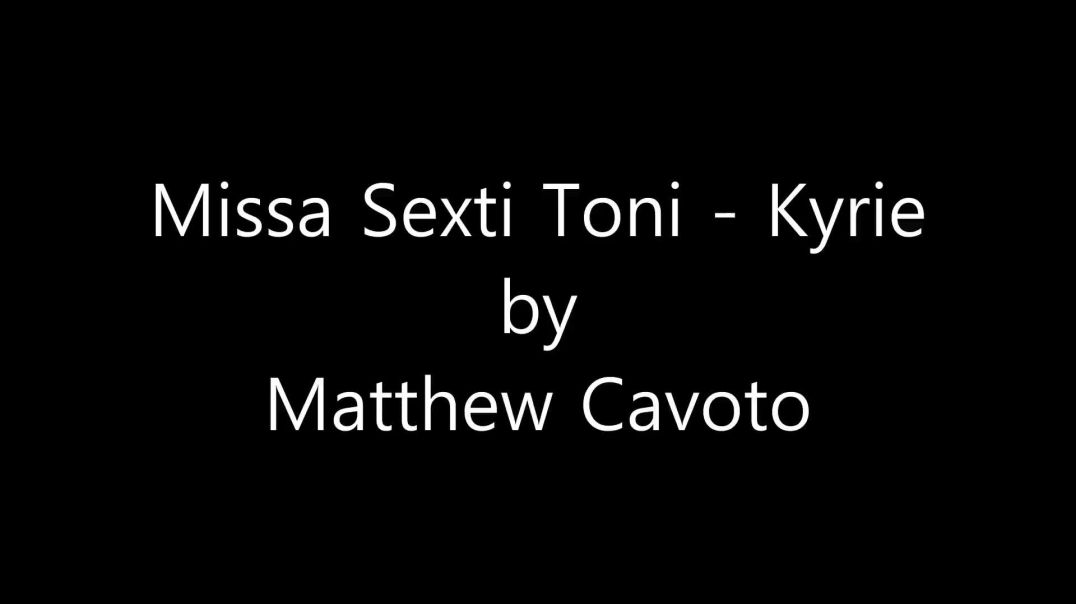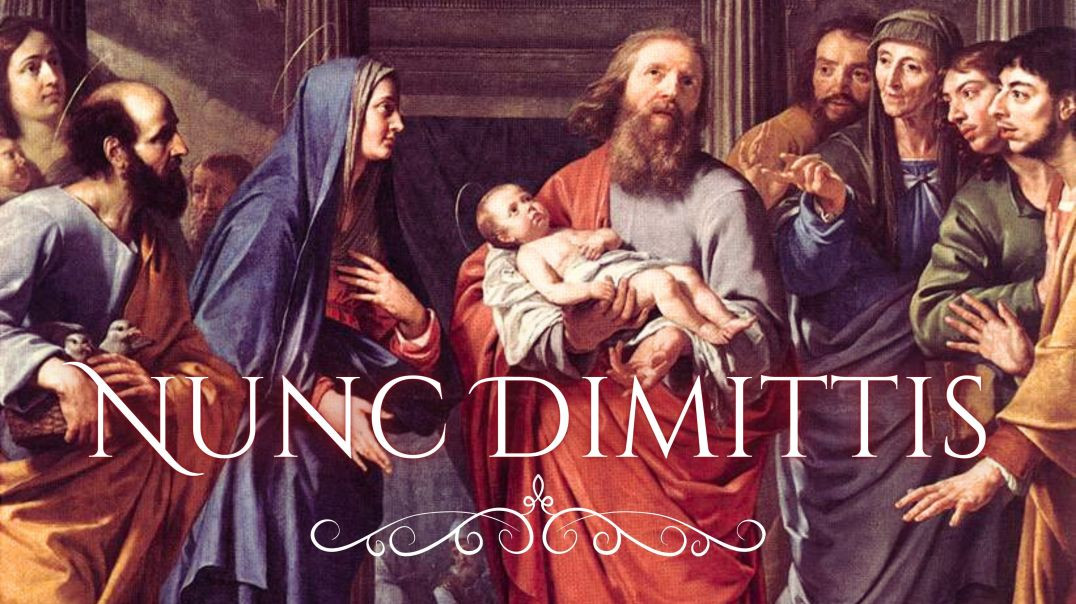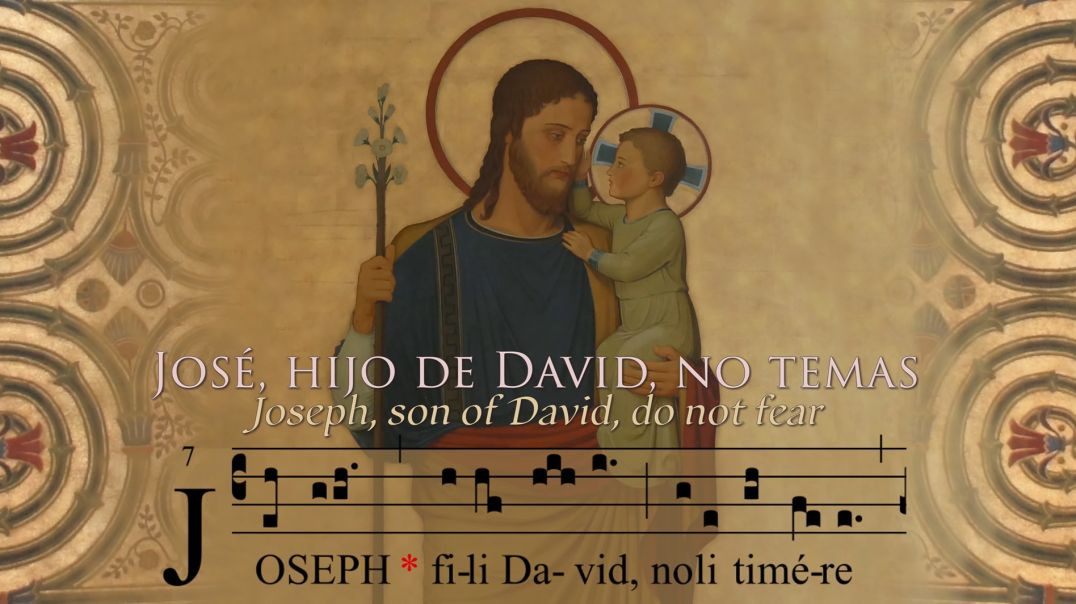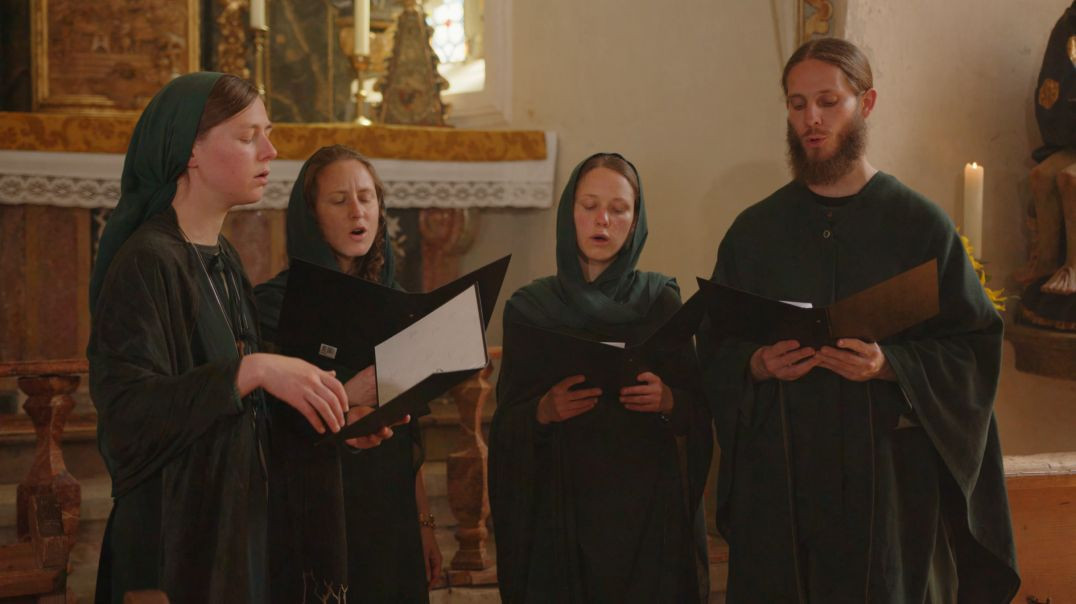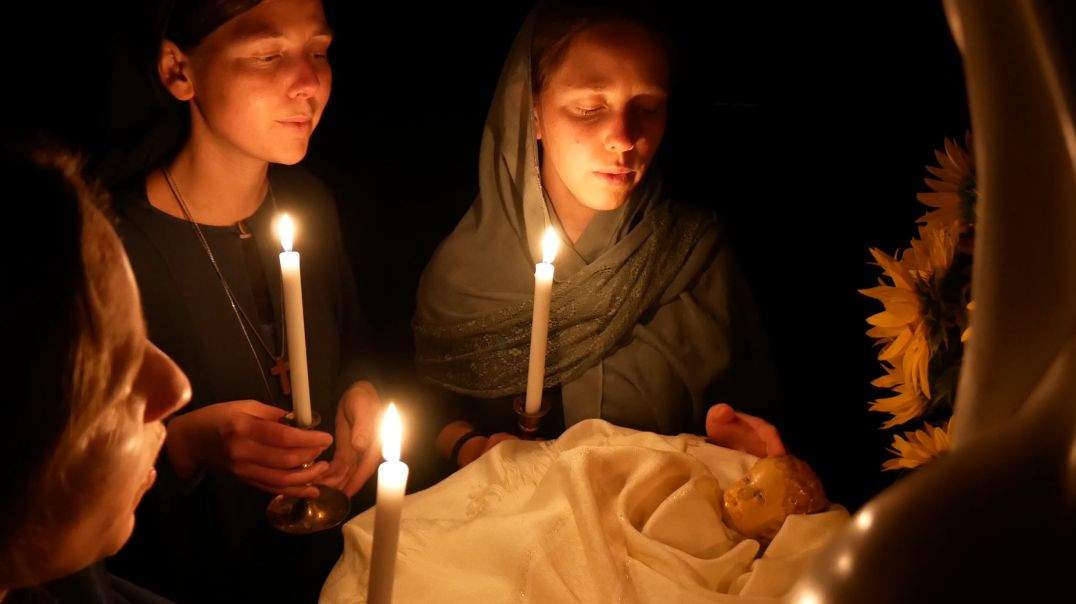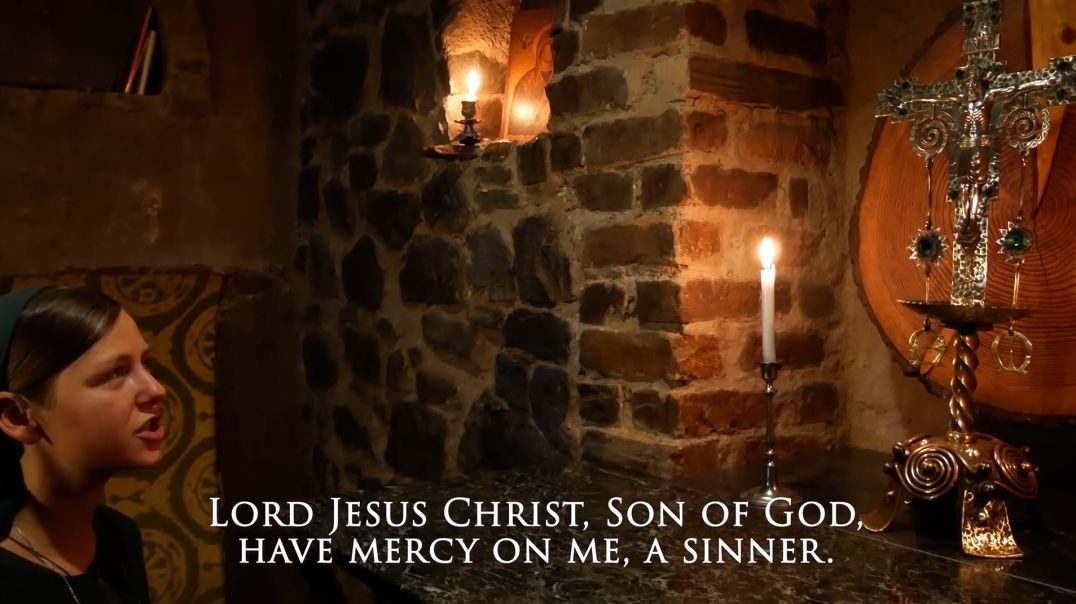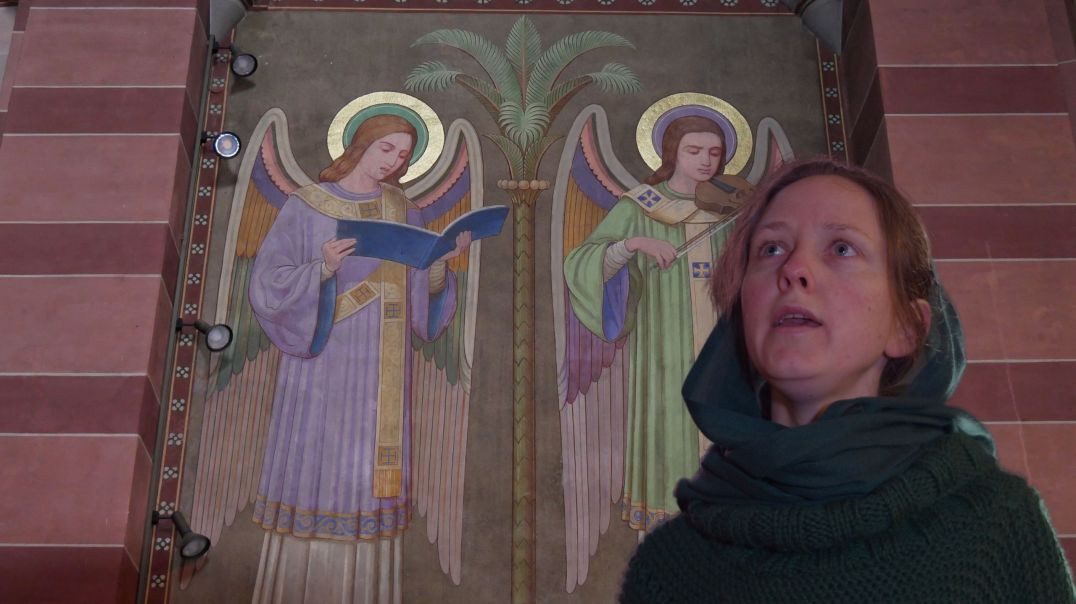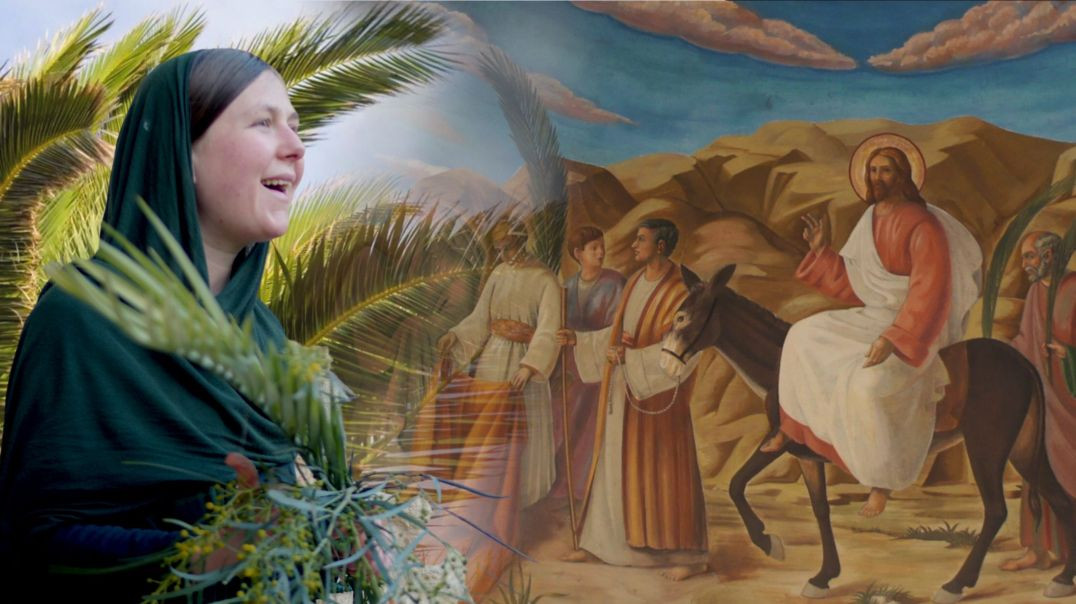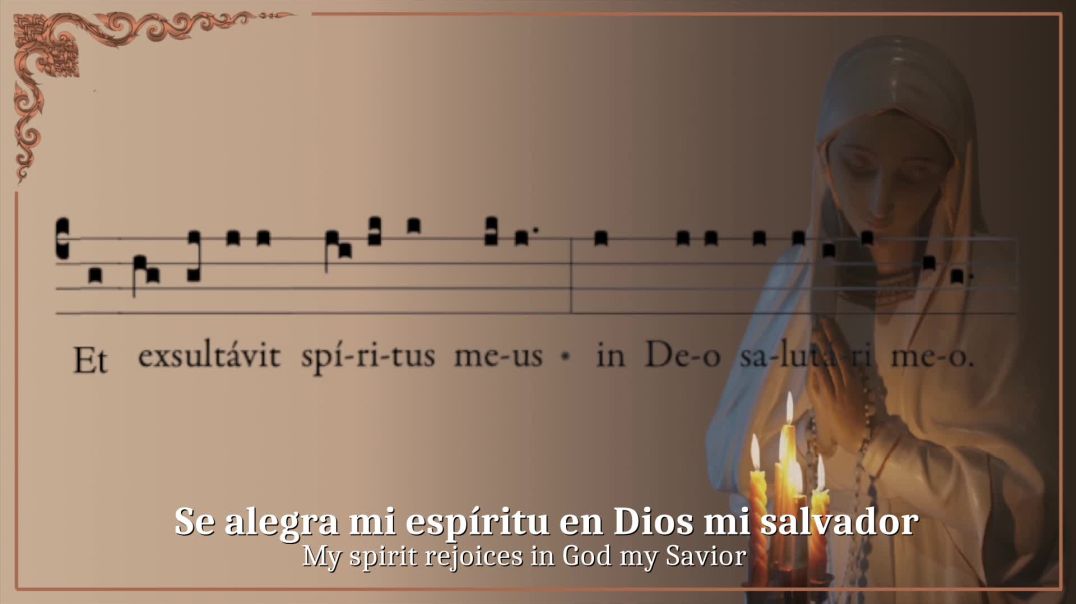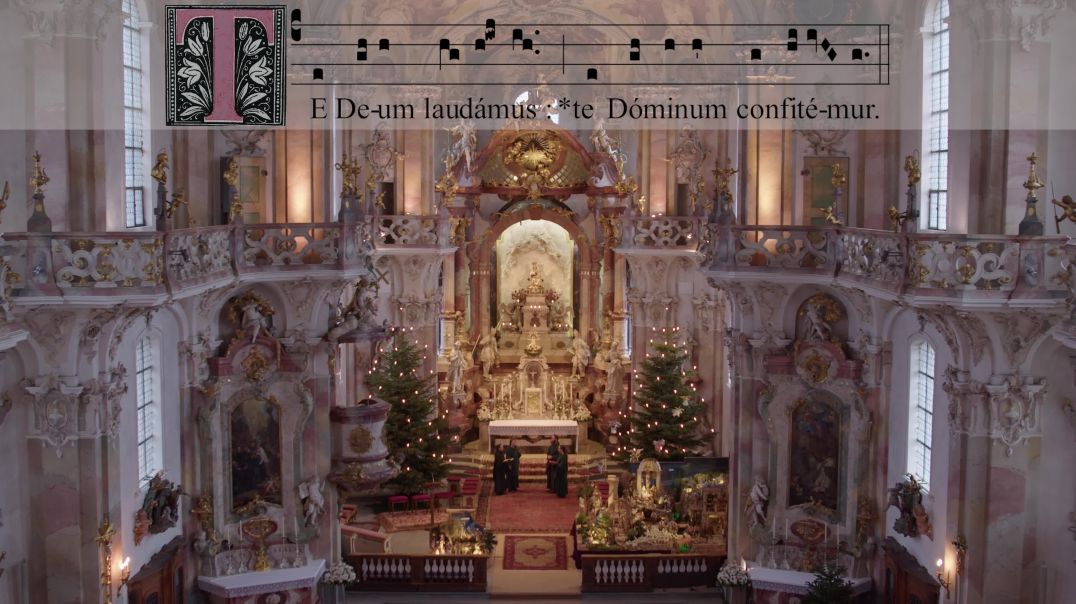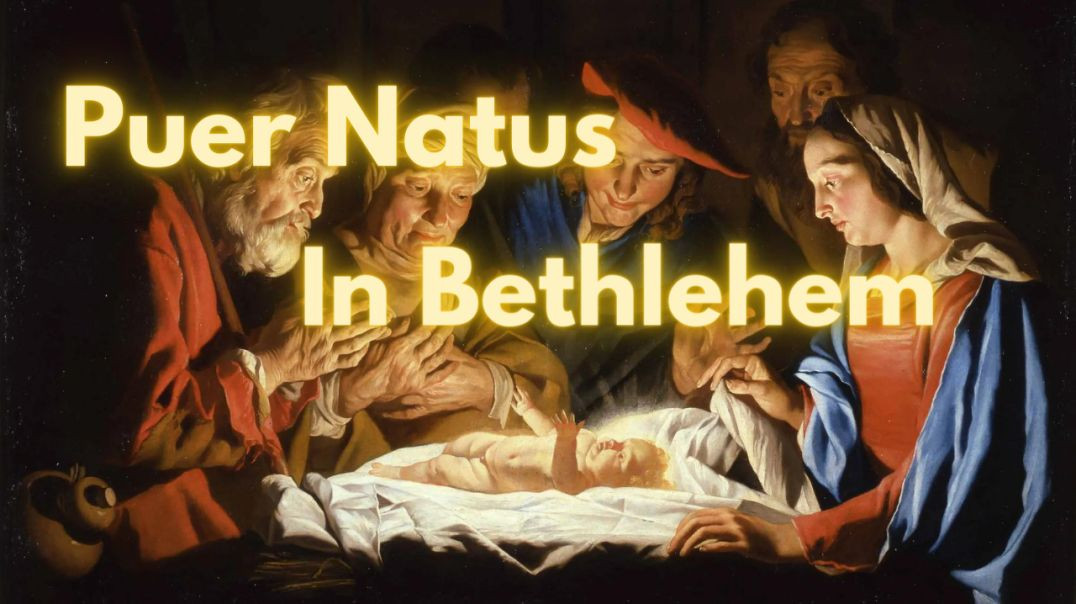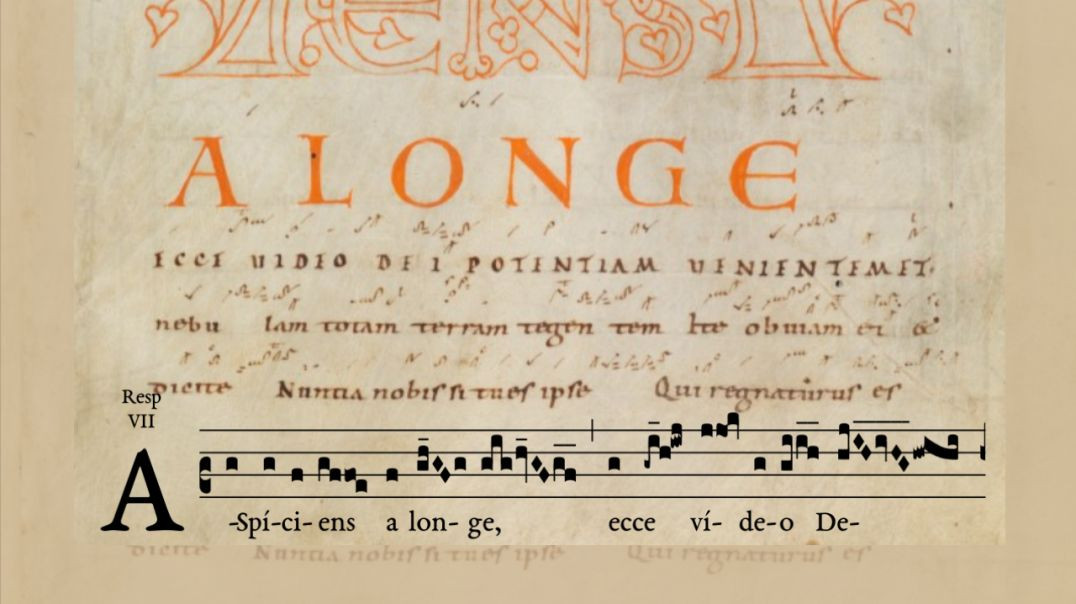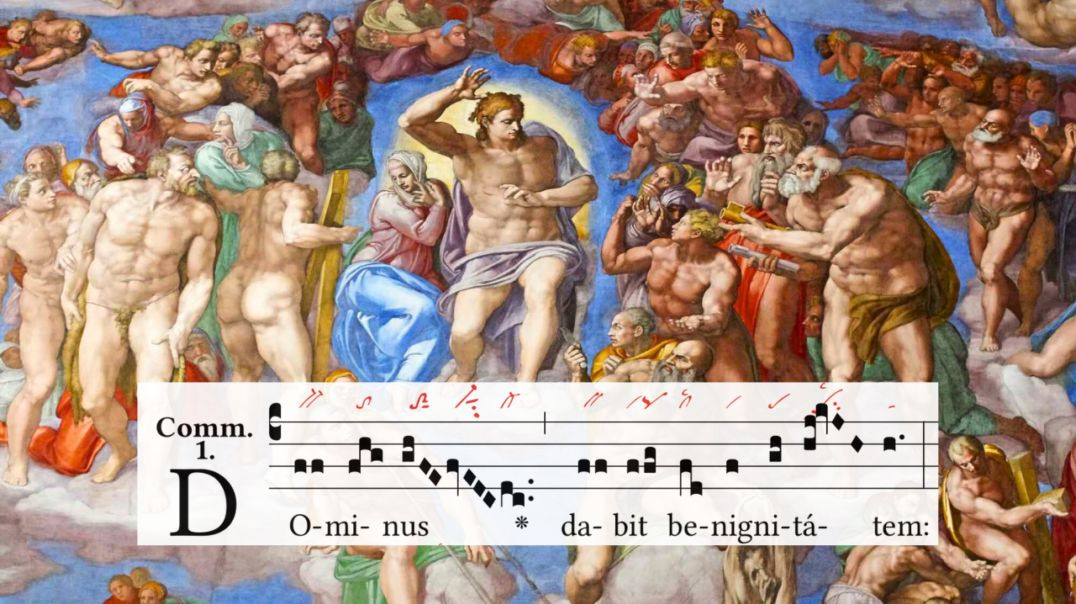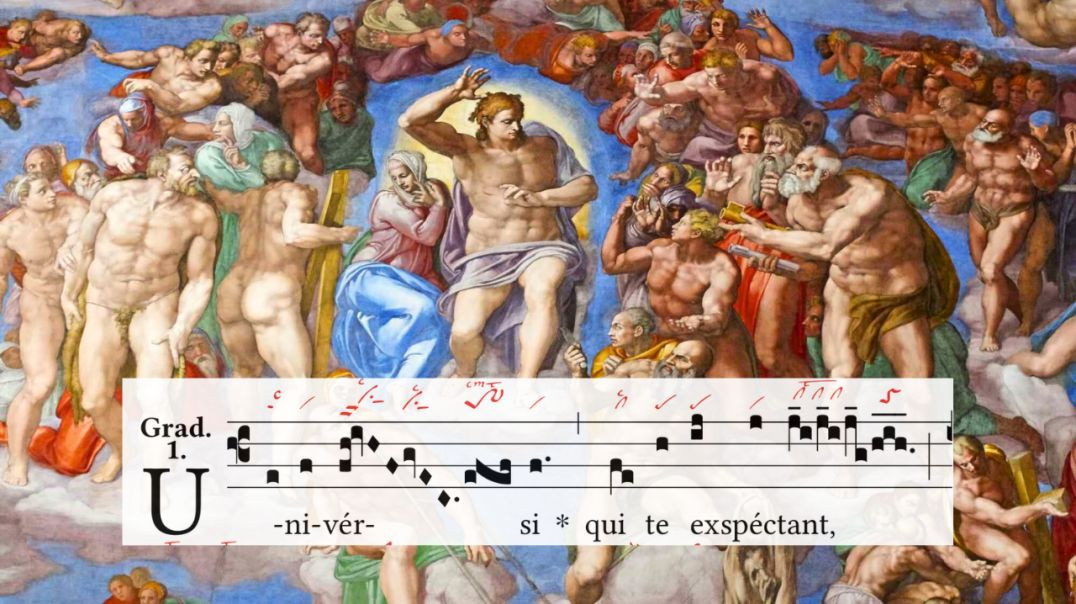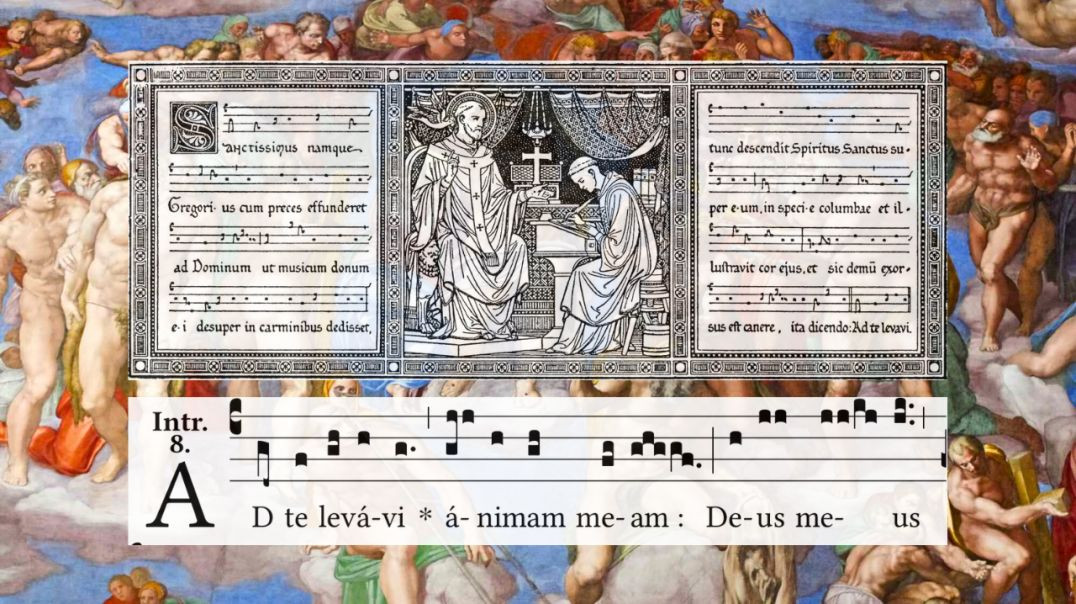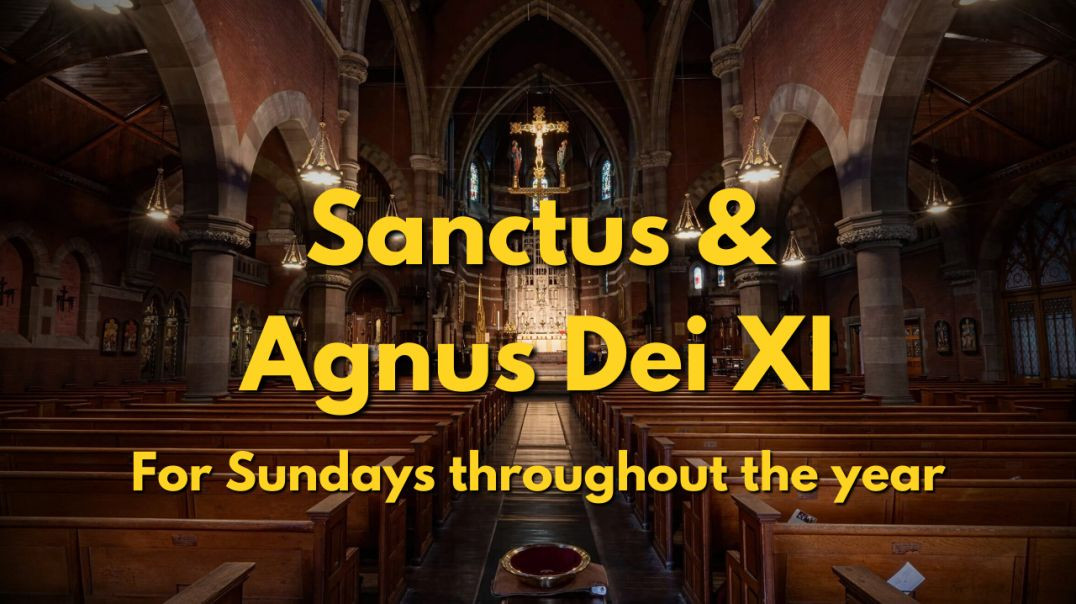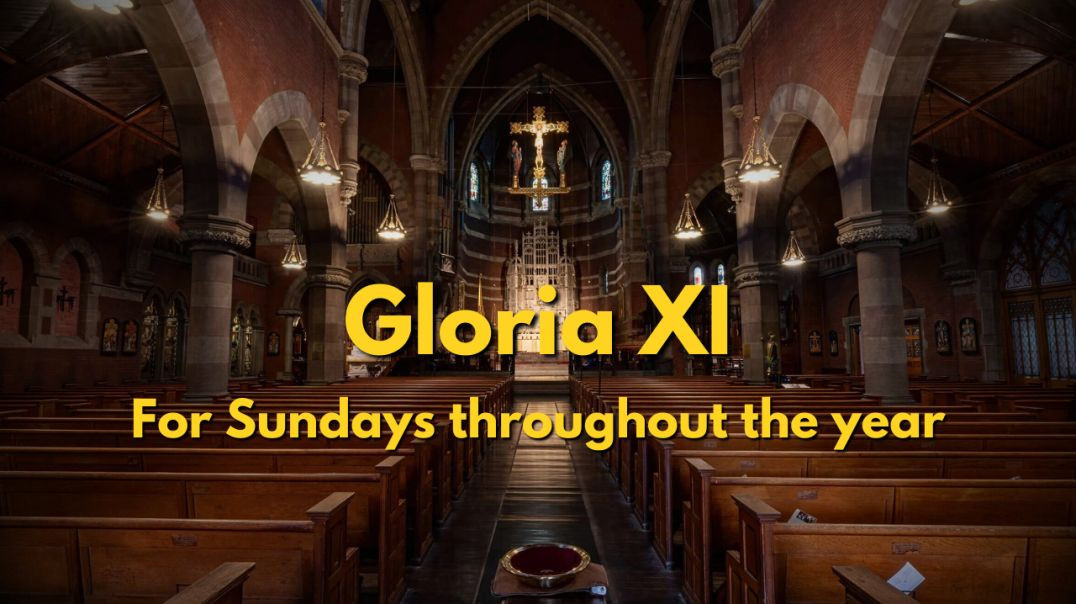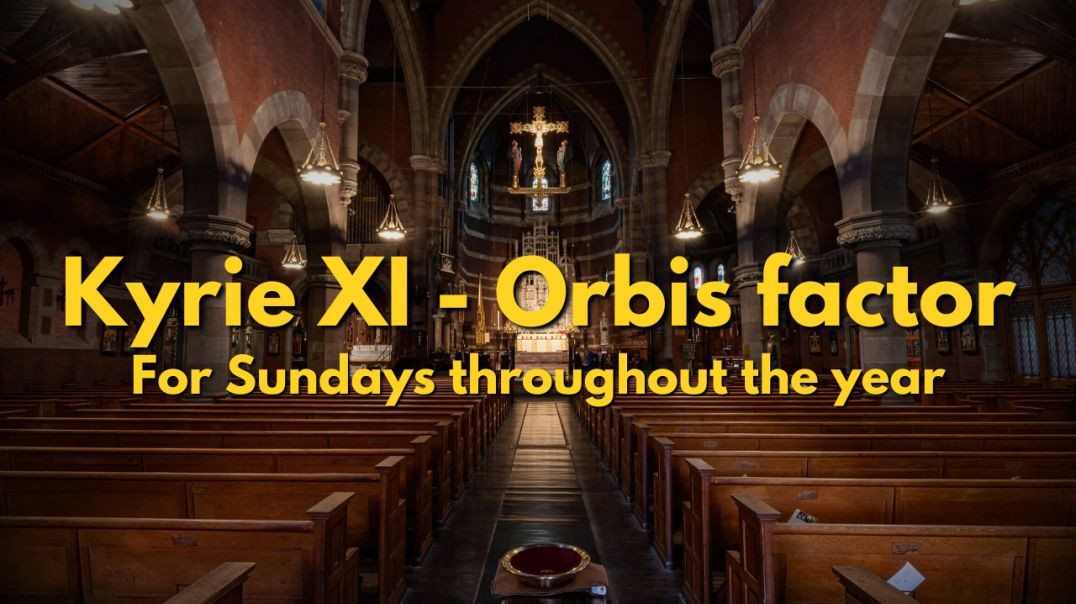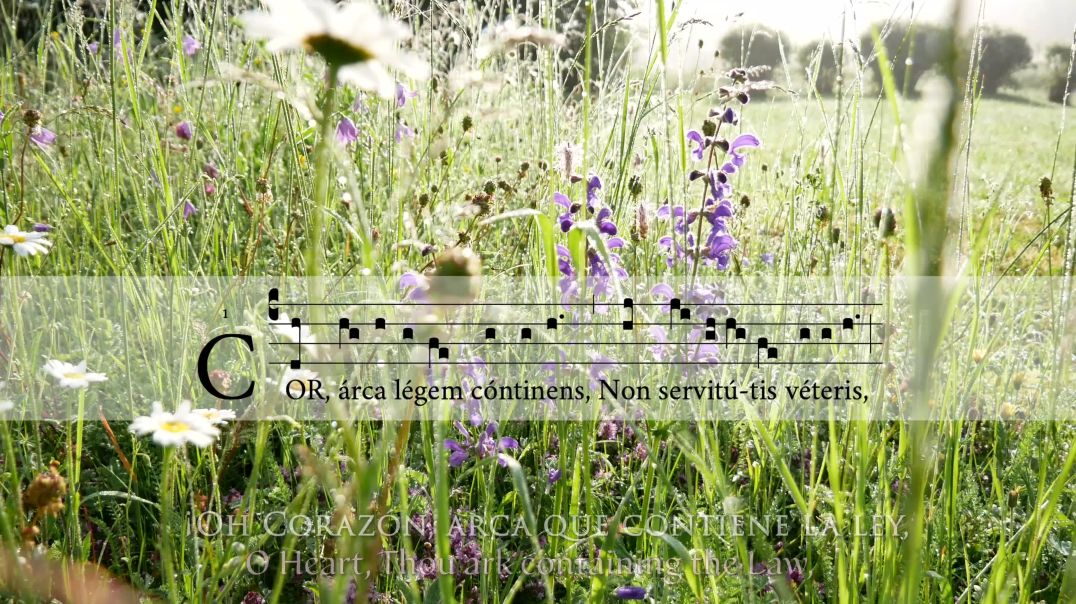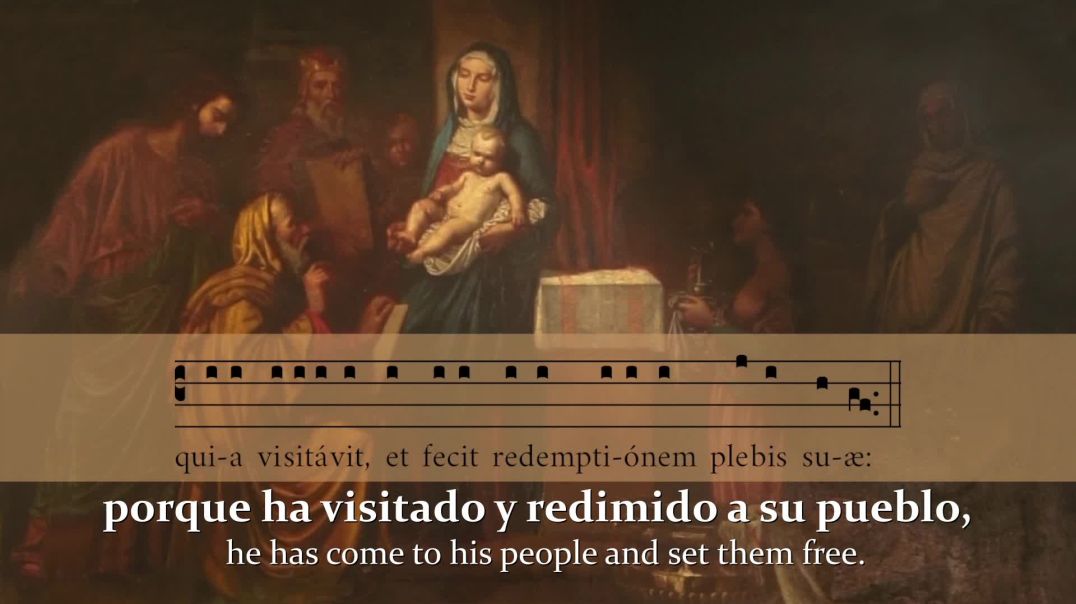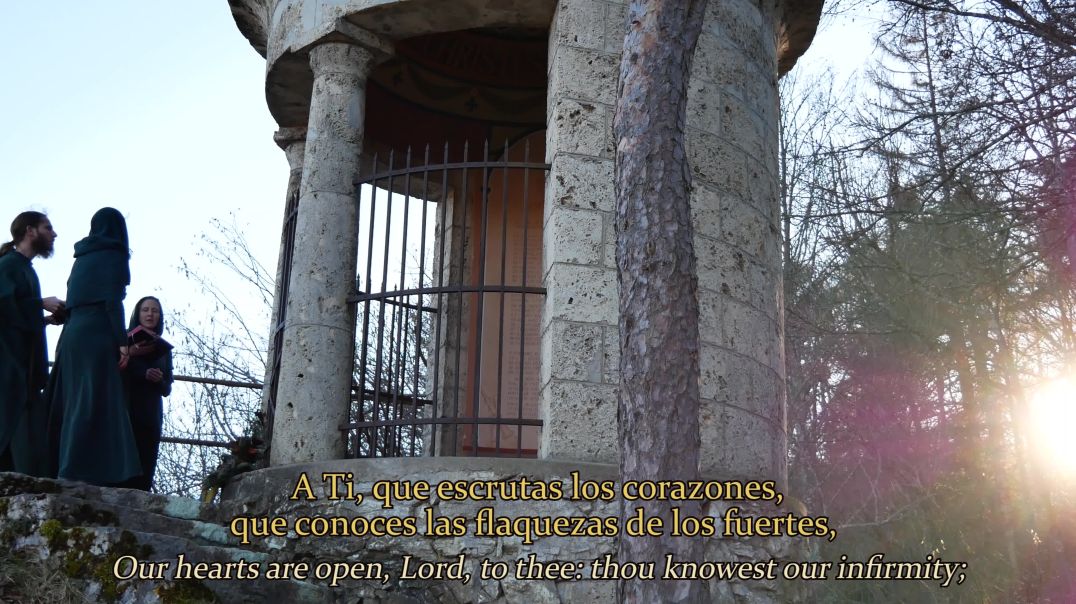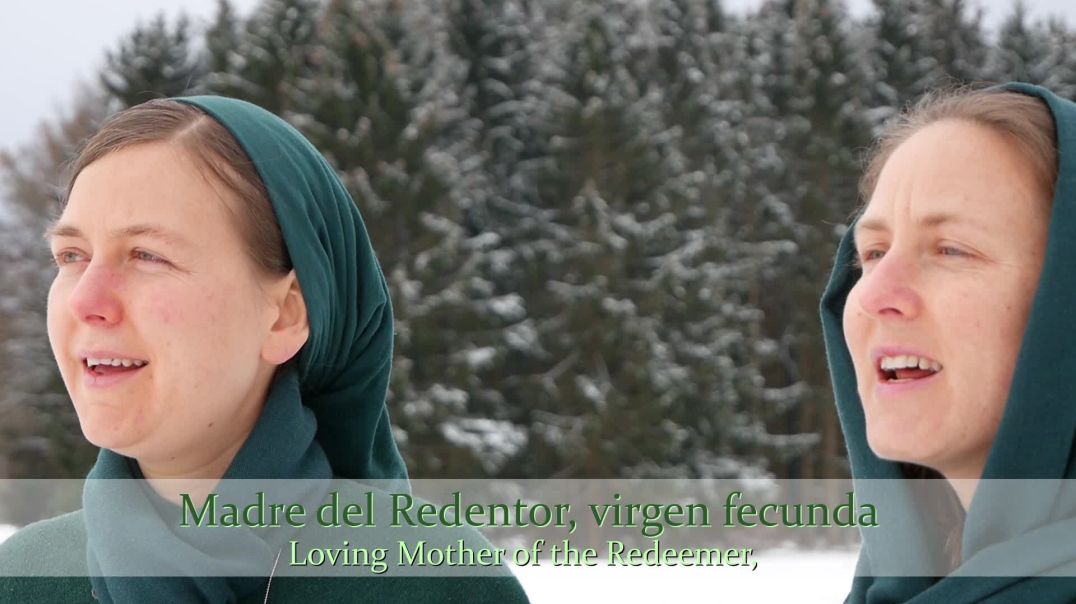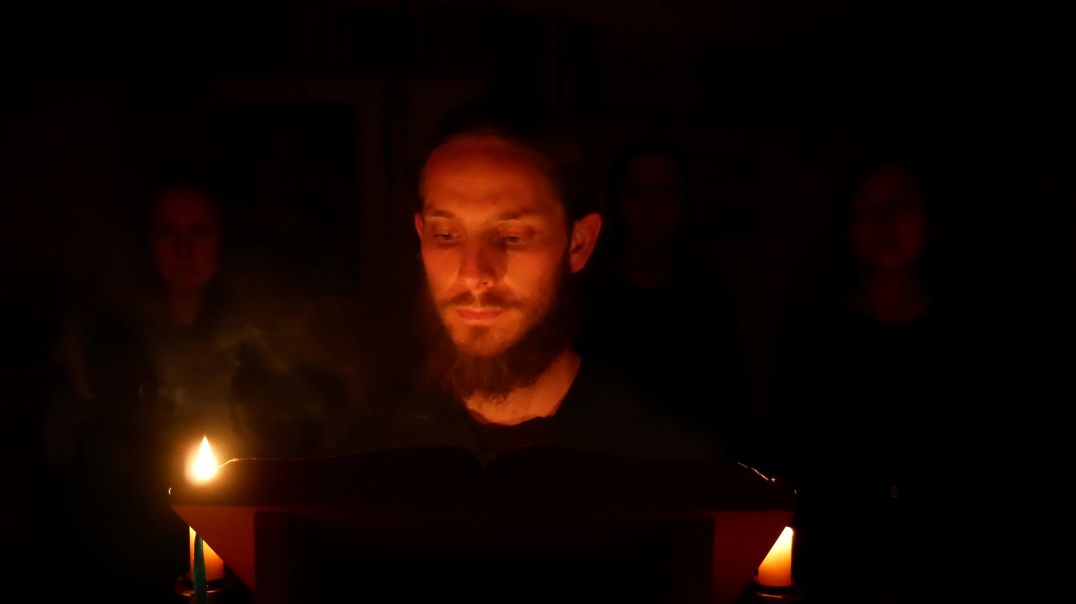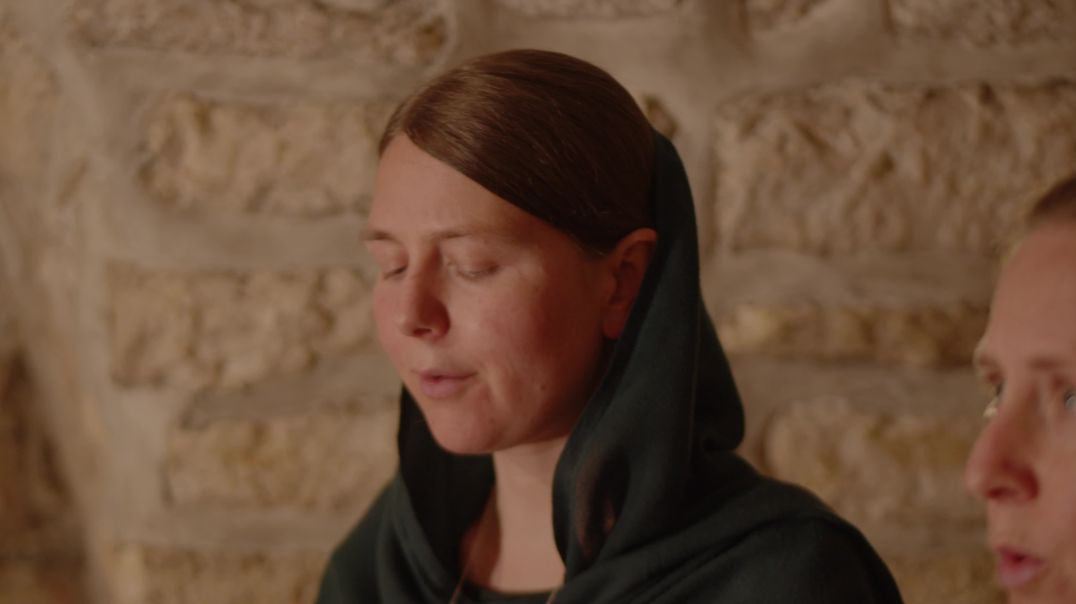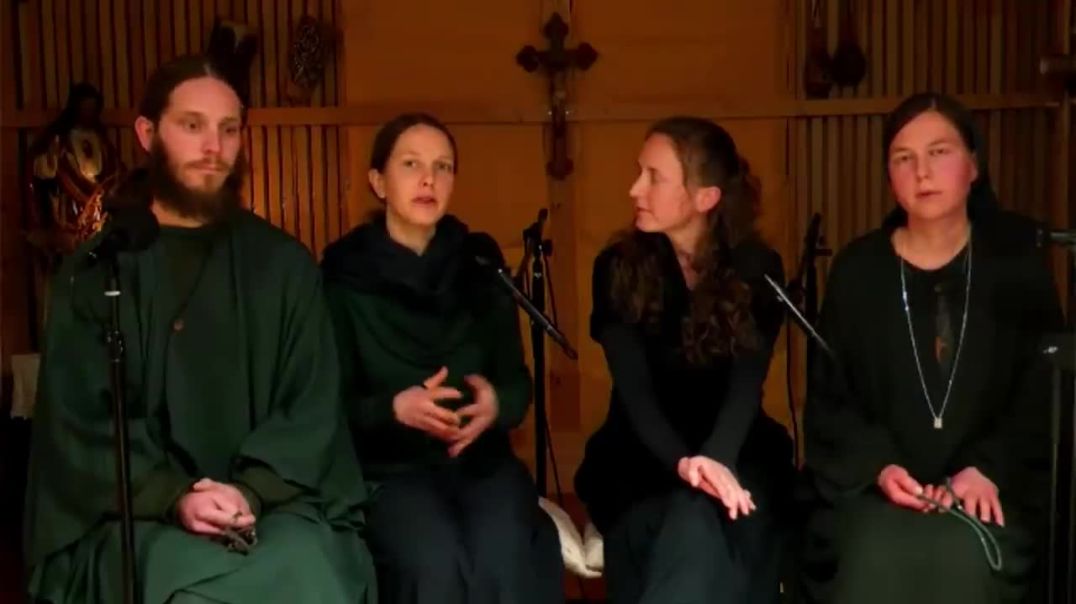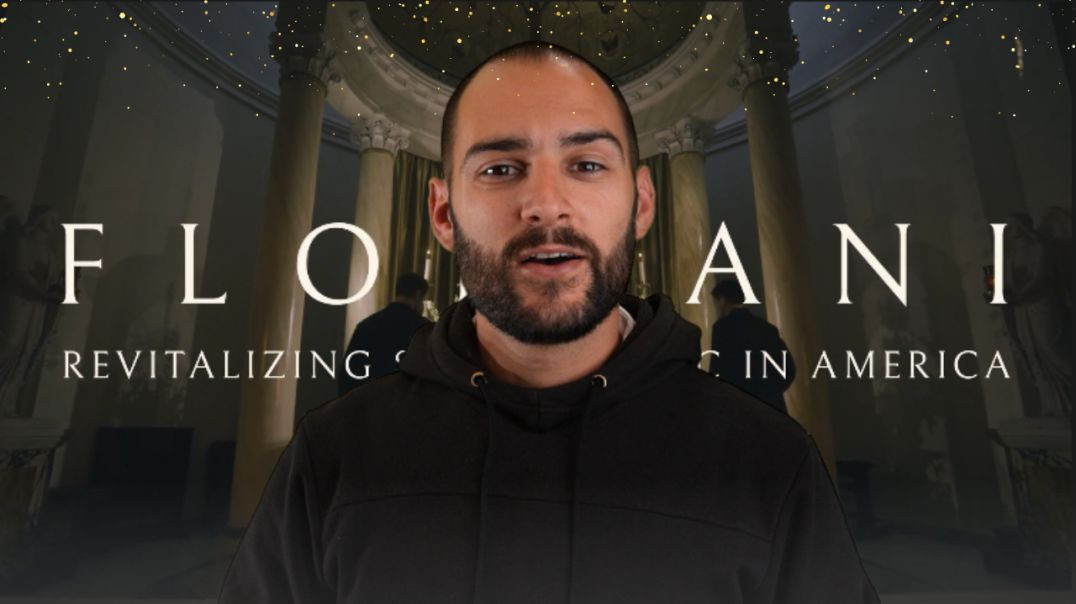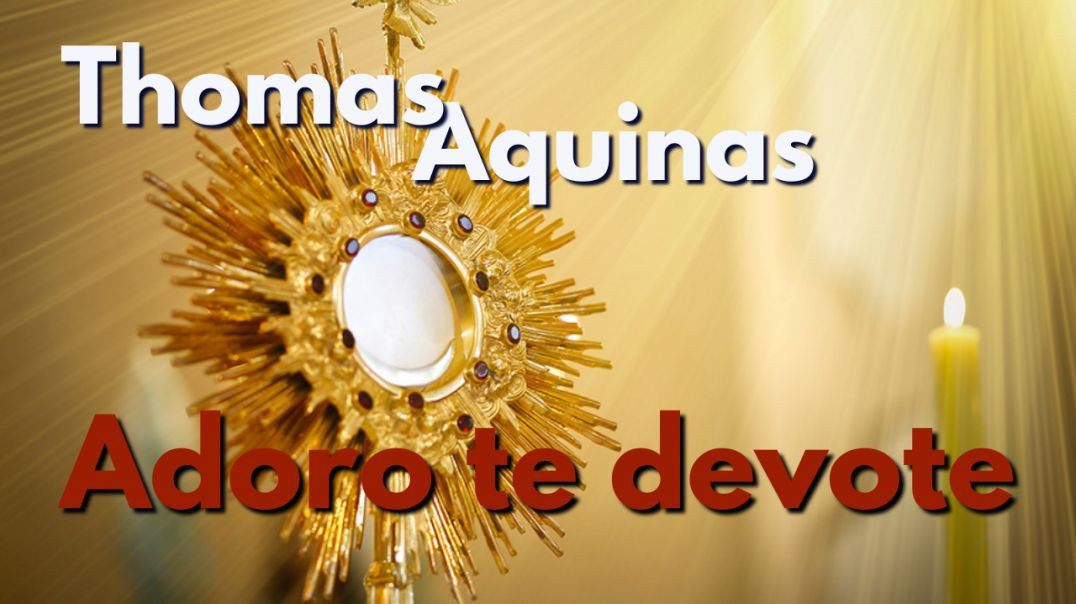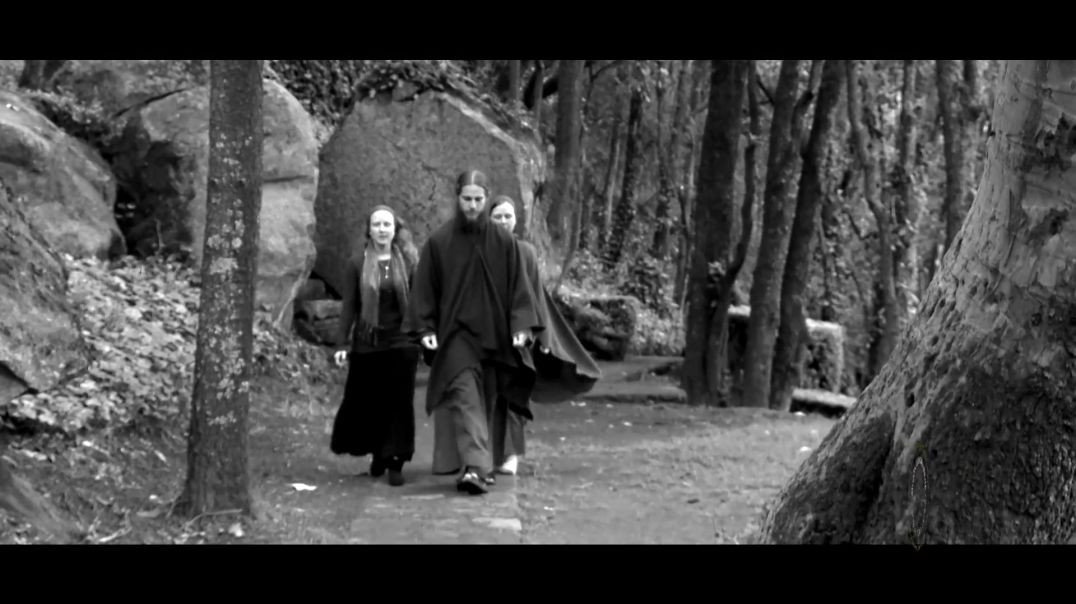Music
Sub Category
I'm pleased to present the next completed section of my Missa Brevis for 5 voices. Here is the Agnus Dei set for SSABB choir.
Free Chant Workshop w/ resources: https://www.floriani.org/gregorian-chant-workshop
Free Chant Mini Course: https://www.gregorianchantacad....emy.com/free-chant-m
Full Online Chant Master Course: https://courses.floriani.org/c....ourses/6716373f-3687
On September 29 we celebrate the feast of St Michael the Archangel and at the Offertory at Mass, we sing this most beautiful of chants. From Dom Gaspar Lefevre's commentary on the liturgy:
"September 29 was formerly dedicated to all the angels ([hence the text selection for the] Introit, Collect, Gradual and Communion) wherefore Pope Boniface II, about A.D. 530, chose that date to dedicate a church in the great circus, at Rome, to St Michael. The Mass composed for the occasion has since been appointed for the 18th Sunday after Pentecost [in the pre Vatican II Missal]; it still relates to the dedication of a church. The present Mass was composed more recently [dating from at least the 9th century]. ... It is [St Michael] who offers to God the prayers of the saints symbolized by incense whose smoke rises toward heaven (hence the text for the Offertory chant and the special Blessing of the incense)."
Make a tax deductible donation at: https://donorbox.org/bring-gca-s-mission-to-life
During our last musical mission in Spain, we had the grace to give a concert and record this video in the Basilica of the Tomb of St. Teresa of Avila, in Alba de Tormes. The sequence "Flos Carmeli" could be considered the most representative chant of the Carmelite Order, attributed to its Prior General Saint Simon Stock (13th century). To this day, Carmelites throughout the world sing with filial piety this hymn to Our Lady of Mount Carmel, whose feast is celebrated on July 16.
With this video, we would like to express our heartfelt gratitude to St. Teresa for accompanying us in such a tangible way during our two missions in Spain, and to send a special greeting to the entire Carmelite Order.
Sanctus - Missa Brevis Quinque Vocibus by Cavoto
This is a much shorter and simpler setting of the Sanctus compared to yesterday's video. It's part of a pair of polyphonic Mass settings I'm working on for my singers at church.
Join me for this free online mini workshop in Gregorian Chant! In this video you will learn the fundamentals of how to read square notation, dispel any fears about not having previous training, and find awesome resources for further study!
Get on our Early Adopter List for the upcoming Master Course: https://www.floriani.org/gregorian-chant-workshop
Resources mentioned in video: https://www.floriani.org/gregorian-chant-workshop
"Floriani has produced an authoritative list of Gregorian Chants specifically aimed at delivering us from the powers of darkness." ~ Anonymous Exorcist
Our new album, Chants Of Deliverance, is now available in both digital and physical cd formats, with PDFs of sheet music, lyrics and translations. Visit www.Floriani.org to your copy!
Download other chant recordings: https://www.GregorianChantAcademy.com/
Online Chant Courses: https://courses.floriani.org/
Make a tax deductible donation at: https://www.floriani.org/donate
On the first Sunday of Lent, the text for all of the propers for the Mass are taken from Psalm 90/91 but the Tract sings the entire psalm - save 3 verses. In the Gospel for this Sunday we also read about Christ's 40 day fast in the desert, at the end of which He was tempted by Satan three times. In one of these Satan tempts our Lord to pride by taking him to the pinnacle of the temple and telling him to jump off, for the angels will protect Him, quoting a verse from this Psalm 90. Christ then quotes from another verse of Holy Scripture to show him 'thou shalt not tempt God'. All in all, many of the Fathers of the Church and Desert Fathers tell us that using scripture can be an efficacious way of combatting temptations - in imitation of Our Lord - and that this Psalm is particularly helpful. The drone in this recording is not created using any synths or pitch correction tools to drop my voice. I actually did sing that low... granted, I was sick at the time, so that helped. ;)
Download this song: https://www.GregorianChantAcademy.com/
Online Chant Courses: https://www.GregorianChantAcademy.com/courses
Make a tax deductible donation at: https://www.floriani.org/donate
Lent is a time of year for us to "slow down" (what 'lent' actually means) and to contemplate on our sins, how much we are in need of God's redeeming grace and to make loving acts of reparation. May this playlist of Gregorian Chants for Lent offer some peace for your mind and soul and help you in your lenten meditations to grow closer to God.
Download my chant recordings at: https://www.GregorianChantAcademy.com/
Online Chant Courses: https://www.GregorianChantAcademy.com/courses
Make a tax deductible donation here: https://www.floriani.org/donate
In the Catholic tradition,
Passiontide calls for
a heightened awareness
of the Lenten sacrifice
by covering the crucifixes,
artwork, statues and other
beautiful reflections of the faith
throughout the church.
This time is a visual reminder
of many important elements
regarding Christ's ultimate
sacrifice for humanity.
[Vexilla Regis chant from my album Excitabo Auroram, video from my Hermitage Chapel]
We thank the Schola of the @GregorianChantAcademy for joining us with their voices in this chant: https://www.gregorianchantacademy.com
Listen here to the full song (without the sound effects of the video): https://open.spotify.com/album..../6IIM2Kjkja2GbHqd62b
The history of this video is about the spiritual fight in which all men are engaged and that has to be waged with the right weapons. This lesson has to be learned by our "hero" in this little film! He represents our often inappropriate pretence to fight the mystery of iniquity with human means. But human courage turns out to be insufficient in this battle! It was the Cross that broke the power of Evil. That is why the chant from the Medal of St. Benedict resounds throughout the video: "Crux sacra sit mihi lux" (The Holy Cross be my light). We sing it 33 times, corresponding to the years our Savior Jesus Christ dwelt on earth.
However, our "hero" is not alone. On his way he is spiritually accompanied by the " prudent virgins ". They take refuge at the Cross, knowing where to find true help. In the ruins of a church, where only the Cross enthroned on the top (a symbol of the present situation of our Holy Church) remains, they keep vigil and light the lamps, while waiting for the "warrior".
The latter, in the midst of his desperate flight from the lion's claws, having exhausted every last one of his arrows in vain, finds the decisive help: a priest who gives him the weapons he needs for his combat: the cross and the Holy Rosary. He himself makes use of the authority conferred on him to drive the enemy away: "Vade retro, Satana!"
Before leaving, the priest hands our "hero" some holy water. The fonts in the churches are to be refilled and this sacramental to be used as another weapon in combat. Thus, our "hero" becomes a "soldier of light" in the army of his Lord - he now knows which weapons to use in this combat!
In the meantime, the " prudent virgins " have found other weapons and spiritual aids: the Word of God and the Virgin Mary, who had to be freed from the dust of oblivion. She assists men in this combat!
Finally, dawn is breaking... After the darkness of this time, the light will come and the darkness will have to give way. This whole struggle must be permeated by trust in God. Indeed, it is not a fight with an open ending! It is not the darkness that will win, but the light.
We commend this little work to the Lord and His holy angels, hoping that it will be of spiritual benefit to all who come in contact with it.
If you are interested in learning more about spiritual combat, listen to this lecture by Brother Elijah: https://www.youtube.com/watch?v=UjivpXNTAQU
_______________________________________________________________________
www.harpadei.com
Spotify: https://open.spotify.com/artis....t/6Ygmtt6OqCEz3OHKv3
Telegram: https://t.me/HarpaDei
Soundcloud: https://soundcloud.com/user-749496596-312451560
Si deseas apoyar a nuestra misión, puedes donar aquí:
If you wish to support our mission, you can donate here:
https://www.paypal.com/donate/....?hosted_button_id=ZB
Tota pulchra es, Maria,
et macula originalis non est in te.
Tu gloria Hierusalem, tu laetitia Israel,
tu honorificentia populi nostri, tu advocata peccatorum.
O Maria, O Maria. Ora pro nobis, intercede pro nobis
ad Dominum Jesum Christum.
__________________________________________________________________________
www.harpadei.com
Spotify: https://open.spotify.com/artis....t/6Ygmtt6OqCEz3OHKv3
Telegram: https://t.me/HarpaDei
Soundcloud: https://soundcloud.com/user-749496596-312451560
Si deseas apoyar nuestra misión, puedes donar aquí:
https://www.paypal.com/donate/....?hosted_button_id=ZB
It's still possible for contemporary composers to write sacred polyphony in the same style as Palestrina, Victoria, and Byrd. But, few are willing to give it a try and they often mix in elements of later periods if they do. This Mass setting is written so that it would be perfectly indistinguishable from one written in the 16th century. Leave a comment to let me know what you think please.
NUNC DIMITTIS (Prayer before going to sleep)
Communion verse from the Mass in honour of Saint Joseph, which sets the words addressed to him by the angel to melody:
“Joseph fili David, noli timere accipere Mariam conjugem tuam: quod enim in ea natum est de Spiritu Sancto est” (Mt 1,20)
“Joseph, son of David, do not fear to take Mary as your wife, for the child conceived in her is of the Holy Spirit”.
“Joseph fils de David, ne craignez point de garder Marie votre Epouse; car ce qui est né en elle est du Saint-Esprit”
"Иосиф, сын Давидов, не бойся взять Марию в жены , не бойся, ибо Дитя, зачатое в ней, от Святого Духа".
___________________________________________________________________________
www.harpadei.com
Telegram: https://t.me/HarpaDei
Soundcloud: https://soundcloud.com/user-749496596-312451560
If you wish to support our mission, you can donate here:
https://www.paypal.com/donate/....?hosted_button_id=ZB
Three songs to our Lady
This video has a little story...
A man from the United States sent me, Br. Elijah, a link to a Georgian chant, sung by some little nuns from this country... He told me that Harpa Dei "had to learn this chant", and added that it was the most beautiful song he had ever heard. As far as he had been able to find out, it was a lullaby, and in some source he had read that the Virgin Mary would have sung it to the Child Jesus.
When I heard this song, I immediately perceived its sublime beauty, characteristic of Georgian music. I then remembered that, when I was with the monks in the monastery of Valaam in Russia, someone had said: "In heaven, it will be the Georgians who sing".
In fact, this is not the first time we have encountered the wonderful music of Georgia. We have recorded and published the Georgian song Shen khar venakhi before.
But... is a lullaby appropriate for Harpa Dei, which normally sings Gregorian chant or other musical traditions, focusing properly on sacred chant? Is it appropriate for them to perform a chant whose text reflects the tender way in which a mother speaks to her child? And what could be shown in a video? But wasn't there a story that the Virgin Mary would have sung it to the baby Jesus? Well, the reason would immediately say: "Well yes, a nice legend".
However, the beauty of this song would not let me go....
And then this thought came to me: Couldn't it be a song that is not sung for just one child? What about a lullaby for our "favourites": the unborn children, who are still in their mother's womb? Couldn't the beauty of this song touch the mothers or fathers, to move their hearts to love and accept the child in the womb? And let the children know that we are waiting for them!
And what about the story that Our Lady would have sung this lullaby to the Child Jesus? And this Jesus has given her to us all as Mother, and we are all called to become children of God through the Child of Bethlehem! Could it be that she can sing this song together with us for all of us?
And this is how the idea of the song came about.
Now it is a lullaby for all children: for the unborn, but also for those who have not experienced the love of a mother, as well as for those who did have the joy of growing up surrounded by love....
Thanks to the Mother of God, this song has been extended to all children, and thanks to the inspiration of the Holy Spirit, it is accompanied by a strong priestly blessing and an authoritative prayer, so that it may touch the hearts of mothers and fathers who are in danger of not welcoming the life entrusted to them.
If you believe it, it will now be the song of the Virgin Mary, which she sings together with us with the intention of consoling and saving her children.
Therefore, our great request as Harpa Dei is that you accompany the song IAVNANA with your prayers, so that it brings blessing, and that you spread it. Heaven and the children will thank you for it!
Listen here to the explanation https://youtu.be/XA5RFLcjMFg
----------------------------------------------------------------------------
www.harpadei.com
Spotify: https://open.spotify.com/artist/6Ygmt...
Telegram: https://t.me/HarpaDei
Soundcloud: https://soundcloud.com/user-749496596...
If you want to support our mission, you can donate here:
https://www.paypal.com/donate/?hosted...
The prayer of the heart sung in CHURCH SLAVONIC: Го́споди Иису́се Христе́, Сы́не Божий, поми́луй мя гре́шнаго (Gospodi Iisuse Hristie, Sine Bozhii, pomilui mea greshnago)
ENGLISH: "Lord Jesus Christ, Son of God, have mercy on me, a sinner."
___________________________________________________________________________
To learn more about the Jesus Prayer, we recommend listening to this lecture by Br. Elijah: https://www.youtube.com/watch?v=K8NmWQ1W0Ks
The "prayer of the heart" (also called the "Jesus prayer") is a valuable form of prayer, originally from the Eastern Church. In an attempt to correspond to St. Paul's exhortation to "pray without ceasing" (1Thess 5:17), the desert fathers developed this systematic repetition of an ejaculatory, the classic form of which is, "Lord Jesus, Son of God, have mercy on me, a sinner." When we have exercised ourselves a little in this prayer, we will notice that, thanks to its simplicity, it lends itself perfectly to praying it in any place and circumstance: while driving, while doing household chores, while in the waiting room, etc.
___________________________________________________________________________
www.harpadei.com
Spotify: https://open.spotify.com/artis....t/6Ygmtt6OqCEz3OHKv3
Telegram: https://t.me/HarpaDei
Soundcloud: https://soundcloud.com/user-749496596-312451560
If you wish to support our mission, you can donate here:
https://www.paypal.com/donate/....?hosted_button_id=ZB
It is with great joy that we publish this chant to the holy angels, composed by St. Hildegard of Bingen. For a whole year we sang it daily and very often in Jerusalem.
With this song, we ask the holy angels - to whom we have entrusted the spreading of our musical apostolate - to help to realise the great intention we carry in our hearts: a true conversion of mankind to the One whom they - the angels - love and serve, and whose divine eyes they gaze upon without ceasing. There is nothing more important for people than to know the love of God and to follow His Son, whom He sent to redeem us.
O most glorious angels, may the triumphant joy of your nature, untainted by every wicked deed, help to drive away the darkness, so that the Kingdom of God may come.
____
In the present year, 2023, we have proposed to serve with our prayer and apostolate in a special way the intention of conversion, and we would like to invite our listeners to join us in this great intention.
English translation of the song:
O living light, O angels glorious!
Below divinity, upon the eyes divine you gaze within the darkness mystical of all creation—
In yearnings set alight which can never be quenched or satiated:
How glorious too are these, the joys your form possesses—
that form that in your number remains untouched by every wicked deed that first arose in your companion, that now-lost angel who wished to fly above, within the hidden
pinnacle of God— then twisted, tortured, he was plunged into his ruin.
But yet, his fall’s devices by cunning plot he laid against the craft of God’s creative finger.
________________________________________________________________________________
www.harpadei.com
Spotify: https://open.spotify.com/artis....t/6Ygmtt6OqCEz3OHKv3
Telegram: https://t.me/HarpaDei
Soundcloud: https://soundcloud.com/user-749496596-312451560
If you wish to support our mission, you can donate here:
https://www.paypal.com/donate/....?hosted_button_id=ZB
_____________________________________
Harpa Dei sings, in an arrangement of the choir's own, the hymn "Gloria, laus et honor", which is the ancient Palm Sunday hymn sung during the solemn entrance into the church on this feast.
The hymn was composed as early as the 9th century by the French bishop Theodulf of Orleans, and from there it reached Rome, where it became an integral part of the liturgy.
The audio and video recordings were made by Harpa Dei in Jerusalem. The shots show Bethphage, the place where Jesus rode the donkey; the Mount of Olives above Jerusalem, and then the Kidron Valley below the city walls; in other words, the path that Jesus Himself traveled on that glorious day when He was recognized by His people as King and Messiah.
Translation of the song into English:
Glory, honour, and laud be to Thee, King Christ the Redeemer!
Children before whose steps raised their Hosannas of praise.
Israel's king art Thou, and the glorious Offspring of David, thou that approachest a King blessed in the Name of the LORD.
Met Thee with Palms in their hands that day the folk of the Hebrews:
We with our prayers and our hymns now to Thy presence approach.
They to Thee proffered their praise for to herald Thy dolorous Passion;
We to the King on His Throne utter the jubilant hymn.
They were then pleasing to Thee, unto Thee our devotion be pleasing;
Merciful King, kind King, Who in all goodness art pleased.
Download the sheet music here: https://gregobase.selapa.net/chant.php?id=10975
________________________________________________________________
www.harpadei.com
Spotify: https://open.spotify.com/artis....t/6Ygmtt6OqCEz3OHKv3
Telegram: https://t.me/HarpaDei
Soundcloud: https://soundcloud.com/user-749496596-312451560
If you wish to support our mission, you can donate here:
https://www.paypal.com/donate/....?hosted_button_id=ZB
Magníficat ánima méa Dóminum,
Et exultávit spíritus méus in Déo salutári méo.
Quia respéxit humilitátem ancíllæ súæ,
ecce enim ex hoc beátam me dícent ómnes generatiónes.
Quia fécit míhi mágna qui pótens est :
et sánctum nómen éjus
Et misericórdia éjus a progénie in progénies timéntibus éum.
Fécit poténtiam in bráchio súo :
dispérsit supérbos ménte córdis súi.
Depósuit poténtes de séde,
et exaltávit húmiles.
Esuriéntes implévit bónis :
et dívites dimísit inánes.
Suscépit Israël púerum súum,
recordátus misericórdiæ súæ.
Sicut locútus est ad pátres nóstros,
Abraham et sémini éjus in saécula.
Glória Pátri et Fílio et Spirítui Sáncto,
Sicut érat in princípio, et nunc, et sémper,
et in saécula sæculórum.
Amen.”
Merry Christmas! "Puer Natus In Bethlehem" is a devotional Christmas hymn with text from the 13th century set to a melody from the 14th century. I tired to add the lyrics on the screen but the video kept having rendering issues for some reason, so I had to remove them. Lyric translation below.
Download this song: https://www.GregorianChantAcademy.com/
Online Chant Courses: https://www.GregorianChantAcademy.com/courses
Make a one-time or monthly tax deductible donation at:
https://www.floriani.org/donate
English translation:
A child is born in Bethlehem, Alleluia.
Wherefore Jerusalem rejoices. Alleluia, alleluia.
The Son assumed flesh, alleluia.
Of God the Father Most High, alleluia.
By a message from Gabriel, alleluia.
A virgin has conceived a son, alleluia.
As a bridegroom from the chamber, alleluia.
He passed through His mother's womb, alleluia.
Here He lies in the manger, Alleluia.
Who reigns without limit. Alleluia
And an angel to the shepherds, alleluia.
Reveals that He is the Lord, alleluia.
The kings of Sheba come, Alleluia.
They offer gold, incense, and myrrh. Alleluia
Each entering the house, Alleluia.
They greet the new-born King of kings. Alleluia
He was born of a virgin mother, Alleluia.
He Who Is light from light, Alleluia.
Without the the serpent's wound, Alleluia.
He comes of our blood; Alleluia
He is like us in the flesh, Alleluia.
Yet different, without sin; Alleluia
That us men redeemed, Alleluia.
Like God and Himself should be. Alleluia
In the joy of this birthday, Alleluia.
Let us bless the Lord: Alleluia.
Praise be to the Holy Trinity, Alleluia.
Let us give thanks to God. Alleluia
The Great Responsory "Aspiciens a longe" is the first responsory of Matins for the 1st Sunday of Advent. This melody first appears in the Antiphoner of Hartker, circa AD 990-1000. It can be found in current books such as the Processionale Monasticum or the Liber Hymnarius, both from Solesmes, with some slight melodic variances.
Translation:
I look from afar:
and behold, I see the power of God coming,
and a cloud covering the whole earth.
Go ye out to meet Him and say:
Tell us if Thou art the One Who is to reign over the people of Israel.
V/ 1. And all the nations and the children of men, the rich and the poor together .
Go ye out to meet Him and say:
Tell us if Thou art the One Who is to reign over the people of Israel.
V/ 2. Look, Who rulest Israel,
Who leadest Joseph like a sheep,
Who sittest upon the cherubim.
Tell us if Thou art the One Who is to reign over the people of Israel.
V/ 3. Lift up your gates, O ye princes, and be ye lifted up, and He shall enter in.
Who is to reign over the people of Israel.
(not included in the original manuscript or recording, but part of the liturgical tradition)
Glory be to the Father, and to the Son,
and lo, I see the pow’r of God coming,
and to the Holy Ghost.
and a cloud covering the whole earth.
Go ye out to meet him and say:
Tell us if Thou art the One Who is to reign over the people of Israel.
Download this song: https://www.GregorianChantAcademy.com/
Online Chant Courses: https://www.GregorianChantAcademy.com/courses
Give a tip or become a monthly supporter at: https://www.GregorianChantAcademy.com/give
or
https://www.floriani.org/support-us
Special Thanks to my top Patreon and BMACoffee supporters:
Maurisa Mayerle, Mary Catherine Maxian, Sheila McBride Mullaly, Andy Mozisek, Sergio Ubach, Chavel Dixon, Alicja and Herve Blanquart, Mara Schumaker, Catherine Fagan, Ed Clark, Daniel Boyer, John Lyssikatos, Collen Lunt, Ted Naff, Mary Lunzer, Boguslaw Czerniakowski, Andrew Hattrup, Paul Hattrup, Noreen Cabili, Shirley Dunnells
Some of my most favorite chants are from the 1st Sunday of Advent. Hear this beautiful communion antiphon "Dominus dabit benignitatem (The Lord giveth goodness)".
Download this song: https://www.GregorianChantAcademy.com/
Online Chant Courses: https://www.GregorianChantAcademy.com/courses
Give a tip or become a monthly supporter at: https://www.GregorianChantAcademy.com/give
or
https://www.floriani.org/support-us
Special Thanks to my top Patreon and BMACoffee supporters:
Maurisa Mayerle, Mary Catherine Maxian, Sheila McBride Mullaly, Andy Mozisek, Sergio Ubach, Chavel Dixon, Alicja and Herve Blanquart, Mara Schumaker, Catherine Fagan, Ed Clark, Daniel Boyer, John Lyssikatos, Collen Lunt, Ted Naff, Mary Lunzer, Boguslaw Czerniakowski, Andrew Hattrup, Paul Hattrup, Noreen Cabili, Shirley Dunnells
Some of my most favorite chants are from the 1st Sunday of Advent. Hear this beautiful Gradual "Universi qui te expectant (All who wait on Thee shall never be confounded)". I love the incredible range of this chant as well: descending to a low LA in the very beginning, and rising all the way up to a high MI, a range of an octave and a half. The acoustics in this recording are a realistic capturing of an actual location (known as a convolution reverb). This particular reverb is from the Sterling Castle Chapel in Scotland.
Download this song: https://www.GregorianChantAcademy.com/
Online Chant Courses: https://www.GregorianChantAcademy.com/courses
Give a tip or become a monthly supporter at: https://www.GregorianChantAcademy.com/give
or
https://www.floriani.org/support-us
Special Thanks to my top Patreon and BMACoffee supporters:
Maurisa Mayerle, Mary Catherine Maxian, Sheila McBride Mullaly, Andy Mozisek, Sergio Ubach, Chavel Dixon, Alicja and Herve Blanquart, Mara Schumaker, Catherine Fagan, Ed Clark, Daniel Boyer, John Lyssikatos, Collen Lunt, Ted Naff, Mary Lunzer, Boguslaw Czerniakowski, Andrew Hattrup, Paul Hattrup, Noreen Cabili, Shirley Dunnells
Some of my most favorite chants are from the 1st Sunday of Advent. Hear this beautiful Introit (entrance) antiphon "Ad te levavi (To Thee I lift up my soul)". There also exists a trope from the 12th century about Pope St Gregory the Great, "Sanctissimus namque Gregorius" and is traditionally sung as a prelude to this introit, the very first of the liturgical year. All of the Propers for this Sunday - with the exception of the Communion antiphon - share the same text from Psalm 24 and express the confidence that we should have in God's mercy to help us overcome our enemies: the world, the flesh and the devil. Advent is a time for spiritual preparation for Christmas and is therefore a time of Penance, not partying as the world does during this time. Let us spend more time in silence and prayer during this season so that we may prepare our hearts ("prepare the way of the Lord") and be ready for Him when He comes on Dec 25. May God bless you and have a blessed Advent.
The acoustics in this recording are a realistic capturing of an actual location (known as a convolution reverb). This particular reverb is from the Sterling Castle Chapel in Scotland.
Download this song: https://www.GregorianChantAcademy.com/
Online Chant Courses: https://www.GregorianChantAcademy.com/courses
Give a tip or become a monthly supporter at: https://www.GregorianChantAcademy.com/give
or
https://www.floriani.org/support-us
Special Thanks to my top Patreon and BMACoffee supporters:
Maurisa Mayerle, Mary Catherine Maxian, Sheila McBride Mullaly, Andy Mozisek, Sergio Ubach, Chavel Dixon, Alicja and Herve Blanquart, Mara Schumaker, Catherine Fagan, Ed Clark, Daniel Boyer, John Lyssikatos, Collen Lunt, Ted Naff, Mary Lunzer, Boguslaw Czerniakowski, Andrew Hattrup, Paul Hattrup, Noreen Cabili, Shirley Dunnells
The Sanctus is the oldest of all of the Ordinary prayers.
Download these songs: https://www.GregorianChantAcademy.com/
Online Chant Courses: https://www.GregorianChantAcademy.com...
Give a tip or become a monthly supporter at: https://www.GregorianChantAcademy.com...
or
https://www.floriani.org/support-us
Special Thanks to my top Patreon and BMACoffee supporters:
Maurisa Mayerle, Mary Catherine Maxian, Sheila McBride Mullaly, Andy Mozisek, Sergio Ubach, Chavel Dixon, Alicja and Herve Blanquart, Mara Schumaker, Catherine Fagan, Ed Clark, Daniel Boyer, John Lyssikatos, Collen Lunt, Ted Naff, Mary Lunzer, Boguslaw Czerniakowski, Andrew Hattrup, Paul Hattrup, Noreen Cabili, Shirley Dunnells
"Glory to God in the highest, and on earth, peace to men of good will." ~ Luke 2: 14
According to musicologists Willi Apel and David Hiley, the Liber Pontificalis says that Pope Symmachus, around the year AD 510, extended the use of the Gloria [in excelsis Deo] over the entire year, for Sundays and feast of Martyrs. Before this (as well as for sometime after) it was sung as a hymn of thanksgiving at the end of the night office of Matins. While the first words of this prayer are scriptural and from the hymn which the angels sang to the shepherds on the first Christmas night when our Savior was born (Luke 2:14), the rest of this hymn is non-scriptural and in prose. The late Dom Daniel Saulnier of Solesmes (and my former mentor) adds this in his book "Gregorian Chant: A Guide" and translated by Dr Ed Schaefer: "The Gloria, attested in Greek and Syrian sources of the fourth century, may go back to a Greek origin in the second century. The Latin text first appears in the West in the seventh century and stabilizes by the ninth century. ... In the Roman liturgy the Gloria was admitted at first only for the Mass of the Christmas night, due to the appropriateness of its text. Soon extended to the major feasts of the year (by Pope Symmachus as mentioned above), it remained for a time reserved to the bishop. ...After the intonation, the text is composed of two parts: an expression of praise to the Father and one to the Son. The terminating mention of the Holy Spirit gives to the whole a Trinitarian character that does not seem to be early: it was most likely added after quarrels related tot eh development of the dogma of the Trinity."
Download this song: https://www.GregorianChantAcademy.com/
Online Chant Courses: https://www.GregorianChantAcademy.com...
Give a tip or become a monthly supporter at: https://www.GregorianChantAcademy.com...
or
https://www.floriani.org/support-us
Special Thanks to my top Patreon and BMACoffee supporters:
Maurisa Mayerle, Mary Catherine Maxian, Sheila McBride Mullaly, Andy Mozisek, Sergio Ubach, Chavel Dixon, Alicja and Herve Blanquart, Mara Schumaker, Catherine Fagan, Ed Clark, Daniel Boyer, John Lyssikatos, Collen Lunt, Ted Naff, Mary Lunzer, Boguslaw Czerniakowski, Andrew Hattrup, Paul Hattrup, Noreen Cabili, Shirley Dunnells
According to the musicologist Willi Apel, the Kyrie Eleison (Greek for "Lord, have mercy) was introduced into the Gallican Rite Mass (now defunct for centuries) at the Council of Vaison in the AD 529, in a statement which implies that it had been introduced sometime before into the Roman Mass. Pope Gregory the Great then added the Christe Eleison sometime during his pontificate, between AD 590 and 604. With each invocation being sung three times (in the EF), this is one of the greatest Trinitarian pleas for mercy.
Lord, have mercy. Lord, have mercy. Lord, have mercy. Christ, have mercy. Christ, have mercy. Christ, have mercy. Lord, have mercy. Lord, have mercy. Lord, have mercy.
Download this song and others: https://www.GregorianChantAcademy.com/
Online Chant Courses: https://www.GregorianChantAcademy.com...
Give a tip or become a monthly supporter at: https://www.GregorianChantAcademy.com...
or
https://www.floriani.org/support-us
Special Thanks to my top Patreon and BMACoffee supporters:
Maurisa Mayerle, Mary Catherine Maxian, Sheila McBride Mullaly, Andy Mozisek, Sergio Ubach, Chavel Dixon, Alicja and Herve Blanquart, Mara Schumaker, Catherine Fagan, Ed Clark, Daniel Boyer, John Lyssikatos, Collen Lunt, Ted Naff, Mary Lunzer, Boguslaw Czerniakowski, Andrew Hattrup, Paul Hattrup, Noreen Cabili, Shirley Dunnells
The text of this chant is taken from the book of Ecclesiasticus/Sirach 36:18 and Psalm 121:1, and, in addition to the 24th Sunday of Pentecost (O.F.)/18th Sunday after Pentecost (E.F.), is used for the Votive Mass for Peace. May all countries experiencing war and persecution be granted peace and grace. Up next will be a prayer for the Church and its Synod.
"O God, from whom all holy desires, all right counsels and all just works do proceed; grant to Thy servants that peace which the world cannot give; that our hearts may be disposed to obey Thy commandments, and the fear of enemies being removed, our times, by Thy protection, may be peaceful. Through Our Lord, Jesus Christ, who livest and reignest with Thee, in the unity of the Holy Spirit, one God, world without end. Amen." ~ Collect from the Votive Mass for Peace.
Download this song: https://www.GregorianChantAcademy.com/
Online Chant Courses: https://www.GregorianChantAcademy.com/courses
Give a tip or become a monthly supporter at: https://www.GregorianChantAcademy.com/give
or
https://www.floriani.org/support-us
Special Thanks to my top Patreon and BMACoffee supporters:
Maurisa Mayerle, Mary Catherine Maxian, Sheila McBride Mullaly, Andy Mozisek, Sergio Ubach, Chavel Dixon, Alicja and Herve Blanquart, Mara Schumaker, Catherine Fagan, Ed Clark, Daniel Boyer, John Lyssikatos, Collen Lunt, Ted Naff, Mary Lunzer, Boguslaw Czerniakowski, Andrew Hattrup, Paul Hattrup, Noreen Cabili, Shirley Dunnells
Chant recordings:
https://www.youtube.com/watch?v=2teDH6e87Wc&list=PL0eu6_WptaE9ayq7R9je44gFZBXWKe7Xr
Interviews:
https://www.youtube.com/watch?v=afgtx1r5xVo&list=PL0eu6_WptaE9xJwB_aLbM53A4tIfgGfYS
Hymn of St. Bonaventure (13th century) to the Sacred Heart of Jesus:
O Heart, Thou ark containing the Law,
not of the old servitude,
but of grace, and indulgence,
and also of mercy.
O Heart, Thou spotless sanctuary of the new covenant,
Thou Temple, holier than the ancient one,
And Veil, more profitable
than that torn of old.
Charity willed Thee to be wounded;
by the spear thrust opened,
that we might venerate
the wounds of an invisible love.
Under this symbol of love,
having suffered bloody and mystical torments,
Christ the Priest offered
each in sacrifice.
Who would not love in turn
the One so loving him?
Who, being thus redeemed, would not love,
and choose eternal dwellings in this Heart?
O Jesus, to Thee be glory,
Who pourest grace from Thy heart,
with the Father and the loving Spirit
unto everlasting ages. Amen.
________________________________________________________________________________
www.harpadei.com
The image we have taken as a background for the canticle of the Benedictus is found in the very place where this prayer was first pronounced: The Church of the Birth of St. John the Baptist in Ain Karem (Israel).
Download here the score with harmonizing tones:
https://shared-assets.adobe.co....m/link/b15a830c-b97a
This hymn is attributed to Pope St. Gregory the Great (540-604) and its use begins at that time. It is used at Vespers from the first Sunday of Lent until the Friday before Passion Sunday, both on Sundays and feast days.
AUDI, benigne Conditor,
nostras preces cum fletibus,
sacrata in abstinentia
fusas quadragenaria.
Scrutator alme cordium,
infirma tu scis virium;
ad te reversis exhibe
remissionis gratiam.
Multum quidem peccavimus,
sed parce confitentibus,
tuique laude nominis
confer medelam languidis.
Sic corpus extra conteri
dona per abstinentiam,
ieiunet ut mens sobria
a labe prorsus criminum.
Praesta, beata Trinitas,
concede, simplex Unitas,
ut fructuosa sint tuis
haec parcitatis munera. Amen.
________________________________________________________________________________
www.harpadei.com
Telegram: https://t.me/HarpaDei
Soundcloud: https://soundcloud.com/user-749496596-312451560
The "Alma Redemptoris Mater" is one of the four Marian Antiphons sung at the end of the liturgy of the hours. Its author is believed to be Hermannus Contractus ("Herman the Lame"; 1013-1054). It is traditionally sung after the recitation of Compline from the first Sunday of Advent until the Feast of Candlemas or Feast of the Purification of the Virgin (2 February)
Alma Redemptoris Mater, quæ pervia cæli
Porta manes, et stella maris, succurre cadenti,
Surgere qui curat, populo: tu quæ genuisti,
Natura mirante, tuum sanctum Genitorem
Virgo prius prius ac posterius, Gabrielis ab ore
Sumens illud Ave, peccatorum miserere.
Loving Mother of the Redeemer,
who remains the accessible Gateway of Heaven,
and Star of the Sea,
Give aid to a falling people
that strives to rise;
O Thou who begot thy holy Creator,
while all nature marvelled,
Virgin before and after
receiving that "Ave" from the mouth of Gabriel,
have mercy on sinners.
www.harpadei.com
Soundcloud: https://soundcloud.com/user-749496596-312451560
With this Compline, the basic structure of which dates back to St. Benedict (6th century), we join the millennia-old tradition of the Divine Office of our Roman Catholic Church. We invite you to sing it with us and with the Church of all ages!
Download here all the texts:
https://acrobat.adobe.com/link..../review?uri=urn:aaid
The village of Nazareth was the place chosen by the Heavenly Father, in His love, for the announcement of the Archangel Gabriel to resound there, which would transform the whole of human history. The long-awaited Messiah would come to this world to redeem humanity. And the Virgin Mary was the one whom the Lord was pleased to look upon and who proved worthy of His choice: to be the Mother of the Son of God.
In this video filmed in Nazareth, Harpa Dei intones the Tractus (a chant sung before the Gospel during penitential seasons) for the Feast of the Archangel Gabriel, which, in the traditional calendar, is celebrated on 24 March, on the eve of the Solemnity of the Annunciation.
English translation:
Hail, Mary, full of grace,
the Lord is with thee
Blessed art thou among women
and blessed is the fruit of thy womb.
Behold, thou shalt conceive in thy womb,
and bring forth a son, and shalt call His name Emmanuel.
How, asked she, can this come about, since I have no knowledge of man?
And the angel answered and said unto her:
The Holy Ghost shall come upon thee and the power of the Most High shall overshadow thee.
Therefore the child to be born will be holy and will be called Son of God.
Text in Latin:
Ave Maria, gratia plena,
Dominus tecum;
benedicta tu in mulieribus,
et benedictus est fructus ventris tui.
Ecce concipies et paries filium,
et vocabis nomen eius Emmanuel
Quomodo, inquit, fiet istud,
quoniam virum non cognosco?
Et respondens Angelus dixit ei:
Spiritus Domini superveniet in te
et virtus Altissimi obumbrabit tibi.
Join me as I sit down for an interview with the members of Harpa Dei to discover more about their lives and their music (November, 2021). Ever since I discovered Harpa Dei in early 2021, I have been a huge fan! A few months after this interview, they asked me if I and my schola friends could assist them in their recording of the song of the prayer on the St Benedict medal. We have been very good friends ever since.
Harpa Dei: https://spiritustv.com/@HarpaDei
St Benedict medal prayer song: https://www.youtube.com/watch?v=KGiwGcmBv1Q
Gregorian Chant Academy downloadable chants: https://www.gregorianchantacademy.com
Online Chant Courses: https://www.gregorianchantacademy.com/courses
Donate (tax-deductible): https://www.floriani.org/donate (Floriani is now the parent of GCA)
I am very happy to bring you three exciting new announcements:
1) regarding the 2023 International Chant Conference
2) regarding exciting new developments in the Academy and
3) ... you'll have to watch to the end to find out!
2023 online Chant Conference: https://www.GregorianChantAcademy.com/conference
Floriani Sacred Music:
Website: https://www.floriani.org
Instagram: https://www.instagram.com/florianisacredmusic/
YouTube: https://www.youtube.com/c/FlorianiSacredMusic
Square Notes Podcast: https://sacredmusicpodcast.com/
Pints With Aquinas: https://www.youtube.com/@PintsWithAquinas
Pipes With Augustine:
YouTube: https://www.youtube.com/@PipesWithAugustine
SpiritusTV: https://spiritustv.com/@PipesWithAugustine
Give a tip or become a monthly supporter at: https://www.GregorianChantAcademy.com/give
or
https://www.floriani.org/support-us
Special Thanks to my top Patreon and BMACoffee supporters:
Maurisa Mayerle, Mary Catherine Maxian, Sheila McBride Mullaly, Andy Mozisek, Sergio Ubach, Chavel Dixon, Alicja and Herve Blanquart, Mara Schumaker, Catherine Fagan, Ed Clark, Daniel Boyer, John Lyssikatos, Collen Lunt, Ted Naff, Mary Lunzer, Boguslaw Czerniakowski, Andrew Hattrup, Paul Hattrup, Noreen Cabili, Shirley Dunnells
Written by St Thomas Aquinas in the 13th century, probably in the wake of the declaration of the feast of Corpus Christi, the "Adoro te devote" was not originally intended for any liturgical use but most likely used as a private prayer for Thomas' daily adoration of the Blessed Sacrament, but was later incorporated into the Roman Missal of 1570 after the Council of Trent. St Thomas also composed the Sequence "Lauda Sion", and the hymns "Pange Lingua", "Sacris Solemniis" and "Verbum Supernum".
Download this song at: https://www.GregorianChantAcademy.com/
Sign up for an online Chant Course at: https://www.GregorianChantAcademy.com/courses
Give a tip or become a monthly supporter at: https://www.GregorianChantAcademy.com/give
GCA is now a division of Floriani Sacred Music: https://www.floriani.org
Special Thanks to my top Patreon and Coffee supporters:
Sergio Ubach, Maurisa Mayerle, Mary Catherine Maxian, Andy Mozisek, John Lyssikatos, Sheila McBride Mullaly, Alicja and Herve Blanquart, Collen Lunt, Ted Naff, Andrew Hattrup, Paul Hattrup, Noreen Cabili, Shirley Dunnells, Chavel Dixon
Este himno fuer cantado especialmente para la campaña de oración en México, como arma espiritual contra el mal de la violencia. Nova Bella (una nueva guerra), se refiere a las luchas espirituales, ya que el mal debe ser vencido con nuestro Señor con la verdad y el amor. El himno en latín está dedicado a Santa Juana de Arco y debe continuar sirviendo contra la violencia en todas las partes del mundo!
This piece was especially sung during the prayer-campaign in Mexiko as a spiritual wapon against the evil of violence. Nova Bella (New wars) means spiritual wars, because the evil should be overcome through our Lord by truth and love! The song in Latin is dedicated to Ste. Jeanne d'Arc (Joan of Arc) and should continue to serve against violence in all parts of the world!
